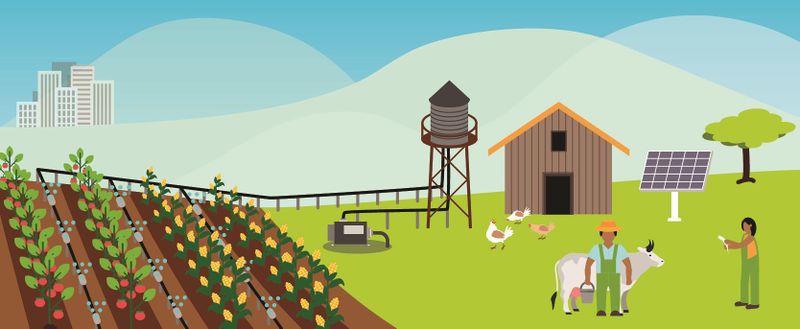Loading map...
{"format":"leaflet","minzoom":false,"maxzoom":false,"limit":50,"offset":0,"link":"all","sort":[""],"order":[],"headers":"show","mainlabel":"","intro":"","outro":"","searchlabel":"... further results","default":"","import-annotation":false,"width":"auto","height":"500px","centre":{"text":"","title":"","link":"","lat":15.6134137,"lon":19.0156172,"icon":""},"title":"","label":"","icon":"","lines":[],"polygons":[{"text":"","title":"","link":"https://energypedia.info/wiki/Category:Africa","strokeColor":"#FF0000","strokeOpacity":"1","strokeWeight":"#CCCCCC","pos":[{"lat":16.492,"lon":-16.435},{"lat":16.509,"lon":-14.238},{"lat":14.562,"lon":-12.216},{"lat":15.411,"lon":-11.337},{"lat":15.326,"lon":-5.361},{"lat":24.806681,"lon":-6.503906},{"lat":24.886436,"lon":-4.833984},{"lat":18.937464,"lon":3.691406},{"lat":19.518375,"lon":5.976563},{"lat":23.362429,"lon":12.041016},{"lat":22.553147,"lon":14.414063},{"lat":23.443089,"lon":15.996094},{"lat":19.435514,"lon":23.90625},{"lat":15.665354,"lon":23.994141},{"lat":15.411319,"lon":23.027344},{"lat":12.597455,"lon":21.972656},{"lat":9.492408,"lon":23.730469},{"lat":10.185187,"lon":25.048828},{"lat":10.09867,"lon":25.839844},{"lat":9.665738,"lon":26.542969},{"lat":9.75237,"lon":31.552734},{"lat":12.082296,"lon":32.607422},{"lat":9.232249,"lon":34.101563},{"lat":12.511665,"lon":35.507813},{"lat":12.854649,"lon":36.123047},{"lat":16.762468,"lon":37.089844},{"lat":17.769612,"lon":38.583984},{"lat":17.287709,"lon":38.979492},{"lat":15.432501,"lon":39.462891},{"lat":14.838612,"lon":40.737305},{"lat":13.560562,"lon":42.231445},{"lat":12.103781,"lon":43.417969},{"lat":11.576907,"lon":42.736816},{"lat":11.490791,"lon":43.26416},{"lat":10.347344,"lon":44.384766},{"lat":10.455402,"lon":45.065918},{"lat":10.844096,"lon":45.834961},{"lat":10.585022,"lon":46.560059},{"lat":11.167624,"lon":47.526855},{"lat":11.576907,"lon":50.427246},{"lat":11.942601,"lon":50.756836},{"lat":11.79208,"lon":51.350098},{"lat":9.329831,"lon":50.800781},{"lat":5.517575,"lon":48.691406},{"lat":2.163792,"lon":45.725098},{"lat":1.658704,"lon":44.714355},{"lat":-1.779499,"lon":41.484375},{"lat":-2.964984,"lon":40.297852},{"lat":-6.293459,"lon":38.803711},{"lat":-7.1663,"lon":39.550781},{"lat":-8.080985,"lon":39.375},{"lat":-10.120302,"lon":39.858398},{"lat":-10.768556,"lon":40.605469},{"lat":-15.390136,"lon":40.737305},{"lat":-17.20377,"lon":39.067383},{"lat":-17.874203,"lon":37.30957},{"lat":-20.03529,"lon":34.760742},{"lat":-22.93816,"lon":35.551758},{"lat":-24.58709,"lon":35.419922},{"lat":-25.582085,"lon":33.09082},{"lat":-28.748397,"lon":32.387695},{"lat":-29.668963,"lon":31.113281},{"lat":-31.597253,"lon":29.838867},{"lat":-33.706063,"lon":27.114258},{"lat":-34.325292,"lon":24.873047},{"lat":-34.397845,"lon":22.016602},{"lat":-35.012002,"lon":19.775391},{"lat":-33.008663,"lon":17.797852},{"lat":-32.49123,"lon":18.457031},{"lat":-28.979312,"lon":16.611328},{"lat":-27.039557,"lon":15.161133},{"lat":-17.957832,"lon":11.689453},{"lat":-12.833226,"lon":12.919922},{"lat":-11.974845,"lon":13.886719},{"lat":-5.900189,"lon":12.172852},{"lat":-4.67498,"lon":11.865234},{"lat":-1.032659,"lon":8.745117},{"lat":3.00887,"lon":10.195313},{"lat":4.455951,"lon":8.393555},{"lat":4.149201,"lon":5.800781},{"lat":6.20609,"lon":4.438477},{"lat":5.987607,"lon":1.40625},{"lat":4.587376,"lon":-1.933594},{"lat":5.025283,"lon":-4.086914},{"lat":5.025283,"lon":-5.800781},{"lat":4.19303,"lon":-7.77832},{"lat":7.384258,"lon":-12.65625},{"lat":8.90678,"lon":-13.227539},{"lat":11.027472,"lon":-15.161133},{"lat":12.232655,"lon":-16.567383},{"lat":13.784737,"lon":-16.721191},{"lat":14.657997,"lon":-17.402344},{"lat":16.492978,"lon":-16.435547}],"onlyVisibleOnHover":false,"fillColor":"#F5AE00","fillOpacity":"0.5"},{"text":"","title":"","link":"https://energypedia.info/wiki/Category:Africa","strokeColor":"#FF0000","strokeOpacity":"1","strokeWeight":"#CCCCCC","pos":[{"lat":-24.95369,"lon":47.120361},{"lat":-18.164121,"lon":49.421997},{"lat":-17.684587,"lon":49.520874},{"lat":-17.358503,"lon":49.416504},{"lat":-16.886032,"lon":49.603271},{"lat":-16.865005,"lon":49.790039},{"lat":-16.740112,"lon":49.737854},{"lat":-16.230498,"lon":49.833984},{"lat":-15.564836,"lon":49.647217},{"lat":-15.511912,"lon":49.87793},{"lat":-15.924356,"lon":50.009766},{"lat":-16.029975,"lon":50.229492},{"lat":-15.268288,"lon":50.515137},{"lat":-14.780194,"lon":50.240479},{"lat":-13.747389,"lon":50.141602},{"lat":-12.999205,"lon":49.921875},{"lat":-12.093039,"lon":49.240723},{"lat":-12.458033,"lon":48.757324},{"lat":-12.91623,"lon":48.922119},{"lat":-13.416337,"lon":48.757324},{"lat":-13.405651,"lon":48.493652},{"lat":-13.629972,"lon":48.317871},{"lat":-13.843414,"lon":48.273926},{"lat":-13.53386,"lon":48.02124},{"lat":-13.651325,"lon":47.878418},{"lat":-14.195163,"lon":47.988281},{"lat":-14.344226,"lon":47.713623},{"lat":-14.695195,"lon":47.713623},{"lat":-15.130462,"lon":47.438965},{"lat":-14.687225,"lon":47.438965},{"lat":-14.88905,"lon":47.290649},{"lat":-15.207337,"lon":47.06543},{"lat":-15.466916,"lon":47.175293},{"lat":-15.498679,"lon":46.983032},{"lat":-15.202037,"lon":46.955566},{"lat":-15.667999,"lon":46.329346},{"lat":-15.853031,"lon":45.604248},{"lat":-16.251594,"lon":44.417725},{"lat":-16.673031,"lon":44.46167},{"lat":-17.534059,"lon":43.92334},{"lat":-18.5317,"lon":44.099121},{"lat":-20.066251,"lon":44.472656},{"lat":-21.217701,"lon":43.791504},{"lat":-21.345665,"lon":43.450928},{"lat":-22.299261,"lon":43.242188},{"lat":-22.968509,"lon":43.395996},{"lat":-23.594194,"lon":43.681641},{"lat":-24.457151,"lon":43.725586},{"lat":-25.110471,"lon":44.099121},{"lat":-25.646478,"lon":45.197754},{"lat":-25.547398,"lon":45.648193},{"lat":-25.209911,"lon":46.362305},{"lat":-25.219851,"lon":46.680908},{"lat":-24.95369,"lon":47.120361}],"onlyVisibleOnHover":false,"fillColor":"#F5AE00","fillOpacity":"0.5"},{"text":"","title":"","link":"https://energypedia.info/wiki/Category:East_Asia_and_Pacific","strokeColor":"#FF0000","strokeOpacity":"1","strokeWeight":"#CCCCCC","pos":[{"lat":36.805766,"lon":75.421143},{"lat":35.403379,"lon":77.969971},{"lat":34.61151,"lon":78.277588},{"lat":34.267204,"lon":79.046631},{"lat":33.354391,"lon":79.002686},{"lat":32.506056,"lon":79.28833},{"lat":32.487524,"lon":78.519287},{"lat":31.162049,"lon":78.936768},{"lat":30.103316,"lon":81.002197},{"lat":29.989196,"lon":81.265869},{"lat":30.406992,"lon":81.68335},{"lat":29.148323,"lon":83.792725},{"lat":29.186696,"lon":84.25415},{"lat":28.783067,"lon":84.385986},{"lat":27.951709,"lon":86.539307},{"lat":27.815758,"lon":88.099365},{"lat":28.009921,"lon":88.780518},{"lat":27.328831,"lon":88.956299},{"lat":28.165001,"lon":89.703369},{"lat":27.971117,"lon":91.329346},{"lat":27.718546,"lon":91.702881},{"lat":29.263399,"lon":94.713135},{"lat":29.033118,"lon":95.372314},{"lat":29.282566,"lon":96.16333},{"lat":28.106872,"lon":97.349854},{"lat":26.486307,"lon":95.108643},{"lat":23.821531,"lon":94.163818},{"lat":23.96216,"lon":93.394775},{"lat":22.162988,"lon":93.197021},{"lat":22.04084,"lon":92.647705},{"lat":21.244326,"lon":92.669678},{"lat":21.080399,"lon":92.186279},{"lat":19.758432,"lon":93.186035},{"lat":17.803088,"lon":94.54834},{"lat":15.868355,"lon":94.196777},{"lat":15.614572,"lon":95.471191},{"lat":16.501405,"lon":96.789551},{"lat":17.048381,"lon":96.921387},{"lat":13.701496,"lon":98.063965},{"lat":12.159633,"lon":98.635254},{"lat":8.311515,"lon":98.239746},{"lat":6.48125,"lon":100.041504},{"lat":5.856475,"lon":100.38208},{"lat":5.025283,"lon":100.404053},{"lat":4.236856,"lon":100.596313},{"lat":3.019841,"lon":101.310425},{"lat":2.811371,"lon":101.233521},{"lat":1.472006,"lon":103.375854},{"lat":1.285293,"lon":103.496704},{"lat":1.362176,"lon":104.320679},{"lat":2.569939,"lon":103.826294},{"lat":2.910125,"lon":103.452759},{"lat":4.817312,"lon":103.441772},{"lat":5.484768,"lon":103.013306},{"lat":5.9439,"lon":102.461243},{"lat":6.151478,"lon":102.367859},{"lat":6.223565,"lon":102.11792},{"lat":6.441951,"lon":101.766357},{"lat":6.791171,"lon":101.480713},{"lat":7.048559,"lon":100.612793},{"lat":9.180193,"lon":99.953613},{"lat":9.310316,"lon":99.382324},{"lat":10.263032,"lon":99.338379},{"lat":12.159633,"lon":99.953613},{"lat":13.231389,"lon":100.129395},{"lat":13.316932,"lon":100.964355},{"lat":12.545984,"lon":100.92041},{"lat":12.073701,"lon":102.634277},{"lat":10.608779,"lon":103.161621},{"lat":10.263032,"lon":104.436035},{"lat":9.787016,"lon":104.875488},{"lat":8.311515,"lon":104.875488},{"lat":9.483739,"lon":106.677246},{"lat":10.176536,"lon":106.896973},{"lat":11.772721,"lon":109.401855},{"lat":15.021197,"lon":109.050293},{"lat":17.88675,"lon":106.501465},{"lat":18.762793,"lon":105.666504},{"lat":21.444888,"lon":107.995605},{"lat":21.24023,"lon":109.797363},{"lat":20.212718,"lon":109.973145},{"lat":19.095343,"lon":108.654785},{"lat":18.38789,"lon":108.742676},{"lat":18.053956,"lon":109.797363},{"lat":18.762793,"lon":110.808105},{"lat":19.717068,"lon":111.027832},{"lat":20.912187,"lon":110.544434},{"lat":22.097855,"lon":113.972168},{"lat":22.62618,"lon":116.213379},{"lat":25.196988,"lon":119.553223},{"lat":29.144485,"lon":122.058105},{"lat":29.947319,"lon":121.970215},{"lat":30.365292,"lon":121.442871},{"lat":31.571048,"lon":122.233887},{"lat":33.019719,"lon":120.827637},{"lat":34.299884,"lon":120.344238},{"lat":34.871511,"lon":119.311523},{"lat":37.216331,"lon":122.739258},{"lat":37.774189,"lon":120.805664},{"lat":38.051552,"lon":117.817383},{"lat":40.700631,"lon":121.245117},{"lat":38.671787,"lon":121.420898},{"lat":39.693662,"lon":124.321289},{"lat":39.327499,"lon":125.354004},{"lat":37.954594,"lon":124.82666},{"lat":37.572447,"lon":125.57373},{"lat":37.607269,"lon":126.452637},{"lat":34.219979,"lon":126.166992},{"lat":35.159439,"lon":129.418945},{"lat":35.846316,"lon":129.528809},{"lat":37.293284,"lon":129.353027},{"lat":38.472514,"lon":128.38623},{"lat":39.089142,"lon":127.55127},{"lat":39.754502,"lon":127.694092},{"lat":40.760573,"lon":129.803467},{"lat":41.751644,"lon":129.825439},{"lat":42.274057,"lon":130.682373},{"lat":42.598385,"lon":130.506592},{"lat":42.921034,"lon":131.099854},{"lat":44.021262,"lon":131.297607},{"lat":44.837174,"lon":130.946045},{"lat":45.256328,"lon":131.934814},{"lat":45.008312,"lon":133.077393},{"lat":47.721588,"lon":134.769287},{"lat":48.277344,"lon":134.714355},{"lat":47.718631,"lon":131.066895},{"lat":48.830012,"lon":130.539551},{"lat":49.661939,"lon":127.63916},{"lat":52.770868,"lon":125.969238},{"lat":53.456657,"lon":123.508301},{"lat":53.194186,"lon":120.915527},{"lat":52.63773,"lon":120.124512},{"lat":52.423863,"lon":120.739746},{"lat":50.255634,"lon":119.289551},{"lat":49.490965,"lon":117.79541},{"lat":49.775588,"lon":116.696777},{"lat":50.171269,"lon":114.32373},{"lat":49.060909,"lon":110.192871},{"lat":49.34803,"lon":108.303223},{"lat":49.832313,"lon":107.907715},{"lat":50.395912,"lon":105.446777},{"lat":50.114942,"lon":103.469238},{"lat":50.507837,"lon":102.502441},{"lat":51.283909,"lon":102.150879},{"lat":52.047085,"lon":98.898926},{"lat":50.980565,"lon":97.756348},{"lat":50.255634,"lon":98.371582},{"lat":49.690376,"lon":97.44873},{"lat":50.058549,"lon":94.592285},{"lat":50.479881,"lon":94.372559},{"lat":50.758699,"lon":92.219238},{"lat":49.089696,"lon":87.780762},{"lat":49.032106,"lon":87.385254},{"lat":49.003285,"lon":86.85791},{"lat":48.335804,"lon":85.671387},{"lat":46.974255,"lon":85.539551},{"lat":47.123971,"lon":83.166504},{"lat":45.144854,"lon":82.155762},{"lat":44.896352,"lon":80.002441},{"lat":43.158711,"lon":80.749512},{"lat":42.156888,"lon":80.266113},{"lat":40.973262,"lon":77.717285},{"lat":40.90687,"lon":76.838379},{"lat":40.27282,"lon":76.442871},{"lat":40.276173,"lon":75.750732},{"lat":40.627295,"lon":75.596924},{"lat":40.41015,"lon":74.827881},{"lat":40.007421,"lon":73.970947},{"lat":39.720708,"lon":73.839111},{"lat":39.510822,"lon":73.921509},{"lat":39.415826,"lon":73.597412},{"lat":38.527541,"lon":73.817139},{"lat":38.355442,"lon":74.718018},{"lat":37.541093,"lon":75.047607},{"lat":37.261813,"lon":75.179443},{"lat":36.805766,"lon":75.421143}],"onlyVisibleOnHover":false,"fillColor":"#008000","fillOpacity":"0.5"},{"text":"","title":"","link":"https://energypedia.info/wiki/Category:East_Asia_and_Pacific","strokeColor":"#FF0000","strokeOpacity":"1","strokeWeight":"#CCCCCC","pos":[{"lat":-33.998027,"lon":151.21582},{"lat":-32.851903,"lon":151.853027},{"lat":-32.500496,"lon":152.468262},{"lat":-30.906938,"lon":153.061523},{"lat":-28.642389,"lon":153.61084},{"lat":-27.805069,"lon":153.446045},{"lat":-27.288808,"lon":153.149414},{"lat":-26.308189,"lon":153.083496},{"lat":-25.775161,"lon":153.083496},{"lat":-25.030861,"lon":153.380127},{"lat":-24.691943,"lon":153.270264},{"lat":-24.861519,"lon":153.138428},{"lat":-25.010951,"lon":153.215332},{"lat":-25.319201,"lon":152.907715},{"lat":-25.197486,"lon":152.644043},{"lat":-24.938748,"lon":152.473755},{"lat":-24.771772,"lon":152.391357},{"lat":-24.562112,"lon":152.050781},{"lat":-23.503552,"lon":150.776367},{"lat":-20.40642,"lon":148.886719},{"lat":-18.500447,"lon":146.425781},{"lat":-15.093339,"lon":145.151367},{"lat":-14.32826,"lon":143.701172},{"lat":-10.941192,"lon":142.382813},{"lat":-12.404389,"lon":141.679688},{"lat":-17.455473,"lon":140.976563},{"lat":-17.790535,"lon":140.141602},{"lat":-15.008464,"lon":135.483398},{"lat":-12.329269,"lon":136.955566},{"lat":-12.093039,"lon":136.428223},{"lat":-12.200442,"lon":136.164551},{"lat":-12.256812,"lon":136.356812},{"lat":-12.492895,"lon":136.208496},{"lat":-12.417801,"lon":135.994263},{"lat":-12.162856,"lon":136.010742},{"lat":-12.280966,"lon":135.736084},{"lat":-12.227286,"lon":135.670166},{"lat":-11.797457,"lon":135.966797},{"lat":-12.24876,"lon":135.219727},{"lat":-12.270231,"lon":135.054932},{"lat":-11.969471,"lon":134.725342},{"lat":-12.055437,"lon":134.516602},{"lat":-11.851223,"lon":134.044189},{"lat":-11.918416,"lon":133.90686},{"lat":-11.848535,"lon":133.829956},{"lat":-11.767881,"lon":133.92334},{"lat":-11.719478,"lon":133.791504},{"lat":-11.800146,"lon":133.560791},{"lat":-11.70872,"lon":133.15979},{"lat":-11.337332,"lon":132.907104},{"lat":-11.531161,"lon":132.670898},{"lat":-10.992424,"lon":132.593994},{"lat":-11.197263,"lon":132.456665},{"lat":-11.226898,"lon":131.824951},{"lat":-11.549998,"lon":132.06665},{"lat":-11.517705,"lon":132.484131},{"lat":-12.130635,"lon":132.615967},{"lat":-12.280966,"lon":132.077637},{"lat":-12.09841,"lon":131.121826},{"lat":-11.453107,"lon":131.550293},{"lat":-11.253837,"lon":131.220703},{"lat":-11.399264,"lon":130.638428},{"lat":-11.173013,"lon":130.385742},{"lat":-11.818965,"lon":130.045166},{"lat":-11.926478,"lon":130.935059},{"lat":-12.238023,"lon":131.000977},{"lat":-12.420483,"lon":130.649414},{"lat":-12.924261,"lon":130.155029},{"lat":-13.213208,"lon":130.133057},{"lat":-13.362899,"lon":130.198975},{"lat":-13.544541,"lon":129.836426},{"lat":-14.466596,"lon":129.375},{"lat":-14.870469,"lon":129.70459},{"lat":-14.721761,"lon":128.122559},{"lat":-13.720708,"lon":126.936035},{"lat":-14.785505,"lon":125.15625},{"lat":-15.654776,"lon":124.387207},{"lat":-16.415009,"lon":124.343262},{"lat":-16.288506,"lon":123.552246},{"lat":-17.486911,"lon":123.596191},{"lat":-16.520366,"lon":122.958984},{"lat":-17.361125,"lon":122.080078},{"lat":-18.32324,"lon":122.124023},{"lat":-19.539084,"lon":121.069336},{"lat":-20.817741,"lon":116.674805},{"lat":-22.451649,"lon":113.774414},{"lat":-24.5771,"lon":113.400879},{"lat":-26.066652,"lon":114.213867},{"lat":-26.480407,"lon":114.147949},{"lat":-25.61181,"lon":112.983398},{"lat":-27.039557,"lon":113.686523},{"lat":-29.439598,"lon":114.916992},{"lat":-31.222197,"lon":115.3125},{"lat":-32.03602,"lon":115.817871},{"lat":-33.367237,"lon":115.708008},{"lat":-33.67864,"lon":115.092773},{"lat":-34.40691,"lon":115.114746},{"lat":-35.083956,"lon":116.586914},{"lat":-35.047987,"lon":118.212891},{"lat":-33.998027,"lon":119.970703},{"lat":-33.998027,"lon":123.618164},{"lat":-32.898038,"lon":124.233398},{"lat":-31.784217,"lon":129.067383},{"lat":-31.672083,"lon":131.52832},{"lat":-32.750323,"lon":134.165039},{"lat":-35.047987,"lon":135.703125},{"lat":-33.082337,"lon":137.900391},{"lat":-36.013561,"lon":136.713867},{"lat":-35.692995,"lon":138.999023},{"lat":-38.08269,"lon":140.449219},{"lat":-38.350273,"lon":142.36084},{"lat":-38.916682,"lon":143.547363},{"lat":-38.470794,"lon":144.360352},{"lat":-38.625454,"lon":145.458984},{"lat":-39.104489,"lon":146.403809},{"lat":-37.987504,"lon":147.810059},{"lat":-37.675125,"lon":149.853516},{"lat":-35.290469,"lon":150.490723},{"lat":-33.998027,"lon":151.21582}],"onlyVisibleOnHover":false,"fillColor":"#008000","fillOpacity":"0.5"},{"text":"","title":"","link":"https://energypedia.info/wiki/Category:East_Asia_and_Pacific","strokeColor":"#FF0000","strokeOpacity":"1","strokeWeight":"#CCCCCC","pos":[{"lat":-40.655639,"lon":144.777832},{"lat":-41.253032,"lon":146.293945},{"lat":-40.805494,"lon":148.07373},{"lat":-41.017211,"lon":148.326416},{"lat":-42.204107,"lon":148.337402},{"lat":-42.171546,"lon":148.095703},{"lat":-43.253205,"lon":147.963867},{"lat":-43.060861,"lon":147.480469},{"lat":-43.540585,"lon":147.282715},{"lat":-43.524655,"lon":146.953125},{"lat":-43.683764,"lon":146.90918},{"lat":-43.506729,"lon":146.222534},{"lat":-43.570442,"lon":146.04126},{"lat":-42.97853,"lon":145.585327},{"lat":-42.998621,"lon":145.497437},{"lat":-42.210211,"lon":145.167847},{"lat":-42.047253,"lon":145.250244},{"lat":-41.432431,"lon":144.755859},{"lat":-41.002703,"lon":144.629517},{"lat":-40.653555,"lon":144.700928},{"lat":-40.655639,"lon":144.777832}],"onlyVisibleOnHover":false,"fillColor":"#008000","fillOpacity":"0.5"},{"text":"","title":"","link":"https://energypedia.info/wiki/Category:East_Asia_and_Pacific","strokeColor":"#FF0000","strokeOpacity":"1","strokeWeight":"#CCCCCC","pos":[{"lat":-41.766394,"lon":174.265137},{"lat":-41.648288,"lon":175.253906},{"lat":-41.286062,"lon":176.000977},{"lat":-39.715638,"lon":177.077637},{"lat":-39.559118,"lon":176.934814},{"lat":-39.219487,"lon":177.055664},{"lat":-39.083172,"lon":177.868652},{"lat":-37.722935,"lon":178.538818},{"lat":-37.548933,"lon":178.033447},{"lat":-38.091337,"lon":177.209473},{"lat":-37.50101,"lon":175.935059},{"lat":-36.571424,"lon":175.539551},{"lat":-37.256566,"lon":175.429688},{"lat":-35.003003,"lon":173.671875},{"lat":-34.930979,"lon":173.320313},{"lat":-34.388779,"lon":172.880859},{"lat":-34.533712,"lon":172.705078},{"lat":-35.164828,"lon":173.166504},{"lat":-35.205233,"lon":173.045654},{"lat":-36.79609,"lon":174.407959},{"lat":-37.814124,"lon":174.770508},{"lat":-38.83115,"lon":174.594727},{"lat":-39.393755,"lon":173.737793},{"lat":-40.237605,"lon":175.209961},{"lat":-40.688969,"lon":175.231934},{"lat":-41.253032,"lon":174.660645},{"lat":-40.78886,"lon":173.847656},{"lat":-41.253032,"lon":173.342285},{"lat":-40.505446,"lon":172.595215},{"lat":-40.90521,"lon":172.111816},{"lat":-41.483891,"lon":171.936035},{"lat":-41.795888,"lon":171.408691},{"lat":-42.577355,"lon":171.123047},{"lat":-43.141078,"lon":170.222168},{"lat":-43.953282,"lon":168.793945},{"lat":-44.016521,"lon":168.33252},{"lat":-45.560218,"lon":166.486816},{"lat":-46.24825,"lon":166.618652},{"lat":-46.399988,"lon":167.739258},{"lat":-46.732331,"lon":168.925781},{"lat":-46.490829,"lon":169.804688},{"lat":-45.805829,"lon":170.947266},{"lat":-44.315988,"lon":171.320801},{"lat":-43.905808,"lon":172.749023},{"lat":-43.838489,"lon":173.166504},{"lat":-43.711564,"lon":173.144531},{"lat":-43.552529,"lon":172.749023},{"lat":-43.145086,"lon":172.803955},{"lat":-42.928274,"lon":173.353271},{"lat":-42.508552,"lon":173.594971},{"lat":-42.208176,"lon":173.95752},{"lat":-41.766394,"lon":174.265137}],"onlyVisibleOnHover":false,"fillColor":"#008000","fillOpacity":"0.5"},{"text":"","title":"","link":"https://energypedia.info/wiki/Category:East_Asia_and_Pacific","strokeColor":"#FF0000","strokeOpacity":"1","strokeWeight":"#CCCCCC","pos":[{"lat":-9.340672,"lon":141.064453},{"lat":-9.427387,"lon":142.822266},{"lat":-8.950193,"lon":143.525391},{"lat":-7.732765,"lon":144.272461},{"lat":-8.341953,"lon":146.074219},{"lat":-10.336536,"lon":147.875977},{"lat":-10.811724,"lon":150.644531},{"lat":-10.336536,"lon":150.644531},{"lat":-7.514981,"lon":147.128906},{"lat":-6.773716,"lon":147.128906},{"lat":-6.773716,"lon":147.919922},{"lat":-5.812757,"lon":151.743164},{"lat":-4.412137,"lon":153.061523},{"lat":-2.657738,"lon":150.952148},{"lat":-3.00887,"lon":150.864258},{"lat":-4.455951,"lon":151.611328},{"lat":-5.637853,"lon":150.864258},{"lat":-5.594118,"lon":148.271484},{"lat":-6.162401,"lon":147.568359},{"lat":-5.462896,"lon":145.854492},{"lat":-4.587376,"lon":145.766602},{"lat":-3.886177,"lon":144.536133},{"lat":-1.384143,"lon":137.856445},{"lat":-1.999106,"lon":136.713867},{"lat":-3.228271,"lon":135},{"lat":-1.999106,"lon":134.208984},{"lat":-0.812961,"lon":134.077148},{"lat":-0.76902,"lon":133.417969},{"lat":-0.241699,"lon":132.451172},{"lat":-0.98872,"lon":130.473633},{"lat":-2.262595,"lon":132.1875},{"lat":-2.833317,"lon":131.923828},{"lat":-3.683373,"lon":132.692871},{"lat":-4.143722,"lon":132.956543},{"lat":-4.121806,"lon":133.363037},{"lat":-3.650482,"lon":133.59375},{"lat":-4.056056,"lon":134.263916},{"lat":-4.143722,"lon":134.604492},{"lat":-4.505238,"lon":135.20874},{"lat":-4.538094,"lon":135.900879},{"lat":-5.304297,"lon":137.735596},{"lat":-6.364435,"lon":138.438721},{"lat":-7.193551,"lon":138.504639},{"lat":-8.434338,"lon":137.60376},{"lat":-8.434338,"lon":138.977051},{"lat":-8.162556,"lon":139.932861},{"lat":-9.340672,"lon":141.064453}],"onlyVisibleOnHover":false,"fillColor":"#008000","fillOpacity":"0.5"},{"text":"","title":"","link":"https://energypedia.info/wiki/Category:East_Asia_and_Pacific","strokeColor":"#FF0000","strokeOpacity":"1","strokeWeight":"#CCCCCC","pos":[{"lat":1.724593,"lon":125.002441},{"lat":0.845917,"lon":123.991699},{"lat":1.30726,"lon":120.849609},{"lat":0.604237,"lon":119.926758},{"lat":-0.626208,"lon":119.663086},{"lat":-1.351193,"lon":119.289551},{"lat":-2.471157,"lon":119.069824},{"lat":-2.866235,"lon":118.696289},{"lat":-3.612107,"lon":118.850098},{"lat":-3.721745,"lon":119.465332},{"lat":-4.072494,"lon":119.597168},{"lat":-5.495704,"lon":119.267578},{"lat":-5.779966,"lon":119.750977},{"lat":-5.626919,"lon":120.498047},{"lat":-3.019841,"lon":120.410156},{"lat":-2.756504,"lon":121.003418},{"lat":-3.612107,"lon":120.827637},{"lat":-4.247812,"lon":121.530762},{"lat":-4.795417,"lon":121.530762},{"lat":-5.583184,"lon":121.970215},{"lat":-5.823687,"lon":122.937012},{"lat":-5.386336,"lon":123.530273},{"lat":-5.145657,"lon":123.068848},{"lat":-4.203986,"lon":123.464355},{"lat":-3.677892,"lon":122.34375},{"lat":-2.866235,"lon":122.387695},{"lat":-2.054003,"lon":121.640625},{"lat":-1.526919,"lon":122.629395},{"lat":-1.680667,"lon":123.552246},{"lat":-0.670151,"lon":123.552246},{"lat":-0.538322,"lon":122.805176},{"lat":-0.801976,"lon":121.59668},{"lat":-1.351193,"lon":120.761719},{"lat":-0.736064,"lon":120.19043},{"lat":0.362546,"lon":120.388184},{"lat":0.340574,"lon":123.046875},{"lat":0.274657,"lon":124.716797},{"lat":1.724593,"lon":125.002441}],"onlyVisibleOnHover":false,"fillColor":"#008000","fillOpacity":"0.5"},{"text":"","title":"","link":"https://energypedia.info/wiki/Category:East_Asia_and_Pacific","strokeColor":"#FF0000","strokeOpacity":"1","strokeWeight":"#CCCCCC","pos":[{"lat":1.911267,"lon":109.423828},{"lat":0.593251,"lon":108.764648},{"lat":-1.34021,"lon":109.335938},{"lat":-1.428075,"lon":109.819336},{"lat":-3.228271,"lon":110.170898},{"lat":-3.228271,"lon":111.665039},{"lat":-3.699819,"lon":111.75293},{"lat":-3.326986,"lon":113.24707},{"lat":-3.590178,"lon":113.774414},{"lat":-3.502455,"lon":114.147949},{"lat":-3.743671,"lon":114.587402},{"lat":-4.269724,"lon":114.609375},{"lat":-3.809446,"lon":115.883789},{"lat":-4.182073,"lon":116.081543},{"lat":-3.524387,"lon":116.499023},{"lat":-2.295528,"lon":116.608887},{"lat":-1.653213,"lon":116.531982},{"lat":-0.807468,"lon":117.608643},{"lat":-0.357053,"lon":117.608643},{"lat":-0.269164,"lon":117.46582},{"lat":0.741556,"lon":117.839355},{"lat":0.763527,"lon":118.828125},{"lat":0.983228,"lon":119.014893},{"lat":1.900286,"lon":117.839355},{"lat":2.251617,"lon":118.190918},{"lat":3.063725,"lon":117.575684},{"lat":3.940981,"lon":117.883301},{"lat":5.167541,"lon":119.377441},{"lat":6.588217,"lon":117.597656},{"lat":7.08999,"lon":116.806641},{"lat":6.146016,"lon":116.048584},{"lat":5.544913,"lon":115.828857},{"lat":5.555848,"lon":115.587158},{"lat":4.986977,"lon":114.752197},{"lat":4.592852,"lon":114.23584},{"lat":4.559998,"lon":113.972168},{"lat":4.264246,"lon":113.928223},{"lat":3.716264,"lon":113.400879},{"lat":3.189879,"lon":113.03833},{"lat":2.756504,"lon":111.269531},{"lat":1.658704,"lon":111.027832},{"lat":1.680667,"lon":109.973145},{"lat":1.911267,"lon":109.423828}],"onlyVisibleOnHover":false,"fillColor":"#008000","fillOpacity":"0.5"},{"text":"","title":"","link":"https://energypedia.info/wiki/Category:East_Asia_and_Pacific","strokeColor":"#FF0000","strokeOpacity":"1","strokeWeight":"#CCCCCC","pos":[{"lat":-8.708463680950864,"lon":124.01367787499998},{"lat":-7.882245994266014,"lon":113.97217496875004},{"lat":-6.879892368661996,"lon":110.96191806249999},{"lat":-6.2687066132809806,"lon":108.47900790624999},{"lat":-5.088026750666941,"lon":106.00708407812499},{"lat":-3.8613322974110997,"lon":105.84778332031249},{"lat":-2.896227471255805,"lon":106.4794941875},{"lat":-1.8697249359757444,"lon":105.9473459033203},{"lat":-1.7652243278058655,"lon":105.4591409316406},{"lat":-1.9076071851675034,"lon":104.83429348828128},{"lat":-0.7865971208874447,"lon":103.6724892265625},{"lat":0.071044154886768,"lon":103.65326508984367},{"lat":1.1044230284719727,"lon":102.57934945312502},{"lat":2.6006682209553333,"lon":100.21728865625005},{"lat":5.017985911644834,"lon":97.51465343750004},{"lat":5.423522057603714,"lon":95.185548875},{"lat":-1.6491872723827699,"lon":100.85449618750005},{"lat":-3.4300791302666367,"lon":101.84326671875004},{"lat":-4.682280519468441,"lon":103.359377},{"lat":-7.18592173414506,"lon":106.62231995312504},{"lat":-7.910902472095261,"lon":109.66004142968745},{"lat":-8.460782084938426,"lon":110.93994640624999},{"lat":-8.311516433361676,"lon":113.24707631249998}],"onlyVisibleOnHover":false,"fillColor":"#008000","fillOpacity":"0.5"},{"text":"","title":"","link":"https://energypedia.info/wiki/Category:East_Asia_and_Pacific","strokeColor":"#FF0000","strokeOpacity":"1","strokeWeight":"#CCCCCC","pos":[{"lat":18.796076956656467,"lon":120.673828125},{"lat":17.37580304174046,"lon":120.322265625},{"lat":16.197793929336918,"lon":120.41015625},{"lat":15.436735889199934,"lon":119.70703125},{"lat":14.50276165360577,"lon":120.322265625},{"lat":13.222832964911253,"lon":121.201171875},{"lat":12.022127469747524,"lon":121.201171875},{"lat":10.816039581826718,"lon":121.81640625},{"lat":9.518412261718568,"lon":122.87109375},{"lat":8.041823673207276,"lon":123.22265625},{"lat":7.083447972430532,"lon":124.189455125},{"lat":6.516179801295913,"lon":124.189455125},{"lat":6.1230761590238165,"lon":124.716796875},{"lat":5.860845075425861,"lon":125.419921875},{"lat":7.606462695438792,"lon":126.474609375},{"lat":9.864956671792143,"lon":125.771484375},{"lat":8.824280408840611,"lon":124.716796875},{"lat":9.864956671792143,"lon":123.92578125},{"lat":11.07491458410682,"lon":123.662109375},{"lat":12.537404087130898,"lon":122.16796875},{"lat":14.07690651748741,"lon":121.904296875},{"lat":15.775337196867119,"lon":121.728515625},{"lat":16.619347772395702,"lon":122.51953125},{"lat":18.212653605548752,"lon":122.080078125}],"onlyVisibleOnHover":false,"fillColor":"#008000","fillOpacity":"0.5"},{"text":"","title":"","link":"https://energypedia.info/wiki/Category:East_Asia_and_Pacific","strokeColor":"#FF0000","strokeOpacity":"1","strokeWeight":"#CCCCCC","pos":[{"lat":31.30859201725875,"lon":130.341796875},{"lat":32.279701761069575,"lon":130.0341796875},{"lat":32.98286285809083,"lon":129.638671875},{"lat":33.75357433255887,"lon":129.375},{"lat":33.6438912947897,"lon":130.2099609375},{"lat":34.00895606287714,"lon":130.9130859375},{"lat":34.372458091684706,"lon":131.044921875},{"lat":35.6322974439909,"lon":133.06640625},{"lat":35.417705165049355,"lon":133.5498046875},{"lat":35.77503985819244,"lon":135.3515625},{"lat":35.45351038202693,"lon":135.6591796875},{"lat":35.81068551193195,"lon":136.0986328125},{"lat":36.130775915228476,"lon":135.966796875},{"lat":36.66136841537242,"lon":136.669921875},{"lat":37.328235417231944,"lon":136.669921875},{"lat":37.57244635282703,"lon":137.4169921875},{"lat":37.04816219398205,"lon":137.0654296875},{"lat":36.73184008139419,"lon":137.2412109375},{"lat":37.39809131173481,"lon":138.69140625},{"lat":38.02386197678946,"lon":139.3505859375},{"lat":37.98923569176731,"lon":138.251953125},{"lat":38.403670577748585,"lon":138.2080078125},{"lat":38.43810027805907,"lon":139.4384765625},{"lat":39.83553693927736,"lon":140.1416015625},{"lat":40.00405464886728,"lon":139.7021484375},{"lat":41.10584619277787,"lon":140.2734375},{"lat":41.501994814397804,"lon":140.09765625},{"lat":42.12430246728179,"lon":140.0537109375},{"lat":42.44940236419677,"lon":139.658203125},{"lat":42.90172182967758,"lon":140.44921875},{"lat":43.414624408255015,"lon":140.625},{"lat":43.478434438891775,"lon":141.240234375},{"lat":43.85988072204418,"lon":141.50390625},{"lat":44.33327849959835,"lon":141.85546875},{"lat":45.33052301887337,"lon":141.50390625},{"lat":45.515585228239544,"lon":141.943359375},{"lat":44.175900361049514,"lon":143.525390625},{"lat":43.95486345939899,"lon":144.580078125},{"lat":44.238902157532216,"lon":145.283203125},{"lat":44.33327849959837,"lon":145.8984395},{"lat":44.207409682473404,"lon":146.2060566875},{"lat":43.66946060289682,"lon":145.37109375},{"lat":43.158711291855845,"lon":145.634765625},{"lat":42.90172182967758,"lon":144.228515625},{"lat":42.61132294645021,"lon":143.7451171875},{"lat":41.830278857667736,"lon":143.2177734375},{"lat":42.61132294645021,"lon":141.7236328125},{"lat":42.31956373973742,"lon":140.7568359375},{"lat":42.57897241208053,"lon":140.537109375},{"lat":42.28706213146367,"lon":140.2294921875},{"lat":41.830278857667736,"lon":141.064453125},{"lat":41.6991661148275,"lon":140.4931640625},{"lat":41.13895047459759,"lon":140.537109375},{"lat":40.90686995102128,"lon":140.9765625},{"lat":41.23816310976129,"lon":141.064453125},{"lat":41.501994814397804,"lon":140.888671875},{"lat":41.37021270360212,"lon":141.416015625},{"lat":40.44025778047789,"lon":141.3720703125},{"lat":40.07134557664062,"lon":141.85546875},{"lat":39.56504664934129,"lon":141.8994140625},{"lat":38.884191188115516,"lon":141.8115234375},{"lat":38.403670577748585,"lon":141.4599609375},{"lat":38.231276048759476,"lon":140.9326171875},{"lat":37.57244635282703,"lon":140.888671875},{"lat":37.01308004739383,"lon":140.9765625},{"lat":36.55553985188415,"lon":140.712890625},{"lat":36.059756910669975,"lon":140.5810546875},{"lat":35.52507303193665,"lon":141.0205078125},{"lat":35.417705165049355,"lon":140.625},{"lat":35.16662330925979,"lon":140.2734375},{"lat":34.77049596505751,"lon":139.7900390625},{"lat":35.23844043686502,"lon":139.7021484375},{"lat":35.70370059759538,"lon":140.1416015625},{"lat":35.77503985819244,"lon":139.658203125},{"lat":35.3460469815603,"lon":139.21875},{"lat":34.950791282242434,"lon":139.04296875},{"lat":34.55362060566756,"lon":138.8232421875},{"lat":35.16662330925979,"lon":138.6474609375},{"lat":34.66212923850883,"lon":138.1640625},{"lat":34.66212923850883,"lon":137.0654296875},{"lat":35.058778612826536,"lon":136.7138671875},{"lat":34.69826725805847,"lon":136.5380859375},{"lat":34.263572044969436,"lon":136.93359375},{"lat":33.97251977685998,"lon":136.2744140625},{"lat":33.49742963995792,"lon":135.8349609375},{"lat":33.93606787124909,"lon":135.087890625},{"lat":34.62597545157444,"lon":135.6591796875},{"lat":34.69826725805847,"lon":135.087890625},{"lat":34.15454485072038,"lon":134.7802734375},{"lat":34.408722038106205,"lon":134.6484375},{"lat":33.826618517644604,"lon":134.6923828125},{"lat":33.2037622746735,"lon":134.033203125},{"lat":33.49742963995792,"lon":133.505859375},{"lat":33.16698426492782,"lon":133.06640625},{"lat":32.7983566600095,"lon":132.9345703125},{"lat":33.05655765749778,"lon":132.451171875},{"lat":33.424105703965,"lon":132.1875},{"lat":33.49742963995792,"lon":131.66015625},{"lat":33.01971795805712,"lon":131.923828125},{"lat":32.42819436096039,"lon":131.7919921875},{"lat":31.907406285606964,"lon":131.572265625},{"lat":31.49613493124723,"lon":131.30859375},{"lat":31.19588661398154,"lon":131.0009765625}],"onlyVisibleOnHover":false,"fillColor":"#008000","fillOpacity":"0.5"},{"text":"","title":"","link":"https://energypedia.info/wiki/Category:Europe_and_Central_Asia","strokeColor":"#FF0000","strokeOpacity":"1","strokeWeight":"#CCCCCC","pos":[{"lat":35.93828366755353,"lon":35.9033203125},{"lat":36.06271659435023,"lon":35.9912109375},{"lat":36.27557291130136,"lon":35.74951171875},{"lat":36.66430530721523,"lon":36.14501953125},{"lat":36.822769616493126,"lon":36.18896484375},{"lat":36.94579326967701,"lon":36.01318359375},{"lat":36.5937717545659,"lon":35.595703125},{"lat":36.55848077654434,"lon":35.31005859375},{"lat":36.80517863217363,"lon":34.62890625},{"lat":36.39947189812867,"lon":34.0576171875},{"lat":36.24013701511053,"lon":34.0576171875},{"lat":36.24013701511053,"lon":33.837890625},{"lat":36.13373292531609,"lon":33.59619140625},{"lat":36.098232782703946,"lon":33.0029296875},{"lat":35.991636106047665,"lon":32.80517578125},{"lat":36.2046850478511,"lon":32.32177734375},{"lat":36.55848077654434,"lon":31.9921875},{"lat":36.75238143013832,"lon":31.46484375},{"lat":36.8579394562158,"lon":31.00341796875},{"lat":36.87551831016556,"lon":30.65185546875},{"lat":36.3817841109689,"lon":30.4541015625},{"lat":36.13373292531609,"lon":29.718017578125},{"lat":36.319845172060965,"lon":29.23736572265625},{"lat":36.61141119427619,"lon":29.0643310546875},{"lat":36.83156359267478,"lon":28.49578857421875},{"lat":36.94731577020771,"lon":27.942607954625373},{"lat":36.54753819283698,"lon":28.14941608232857},{"lat":36.027659285416796,"lon":27.989148271180284},{"lat":35.908925590902385,"lon":27.82112374060614},{"lat":36.13394112360203,"lon":27.737111475319125},{"lat":36.599814889712555,"lon":27.82694128017556},{"lat":36.93715265529719,"lon":27.30056712010378},{"lat":37.1753271927594,"lon":27.344997227567887},{"lat":37.46873097838597,"lon":27.2793216563},{"lat":37.61500290986274,"lon":26.719140120665998},{"lat":37.513946593640696,"lon":25.999596227848997},{"lat":37.61213453876221,"lon":26.07547084392297},{"lat":37.623227600932815,"lon":26.239240084996936},{"lat":37.8018263355258,"lon":26.544805910894752},{"lat":37.73712221110674,"lon":27.344754502417572},{"lat":37.998500867518146,"lon":27.14923183779831},{"lat":38.120793243517696,"lon":26.82187723567904},{"lat":38.20835857183112,"lon":25.94520422730966},{"lat":38.56202752331172,"lon":25.836455566874974},{"lat":38.643886373220624,"lon":26.386330283532743},{"lat":38.903131585687426,"lon":26.902968860611622},{"lat":39.215644826855524,"lon":26.77676566477612},{"lat":39.27654992451793,"lon":26.65732024081717},{"lat":39.51070466046953,"lon":26.916203044462804},{"lat":39.57491635492927,"lon":26.757609379358314},{"lat":39.487353750698944,"lon":26.334012200979032},{"lat":39.39968074597816,"lon":26.26198152259974},{"lat":39.34305502578696,"lon":26.381592040841042},{"lat":39.212643404409505,"lon":26.445031827323874},{"lat":39.0364797273434,"lon":26.59388405653931},{"lat":38.97382576545272,"lon":26.40819007747018},{"lat":39.03633977360707,"lon":26.157649728707156},{"lat":39.14141586521184,"lon":25.87964655963151},{"lat":39.26334964306702,"lon":25.920248906181087},{"lat":39.35931443812334,"lon":26.203501901753953},{"lat":39.48304695972535,"lon":26.099835877274472},{"lat":39.65732696851298,"lon":26.13349995435749},{"lat":39.97200603083347,"lon":26.183290977274055},{"lat":40.019515697809084,"lon":26.35100875435728},{"lat":40.13571284754186,"lon":26.39092233039878},{"lat":40.02568763986974,"lon":26.180166227794643},{"lat":40.13879362666116,"lon":26.217610442117575},{"lat":40.11130523981443,"lon":25.66504348677904},{"lat":40.21358437181719,"lon":25.8290237713818},{"lat":40.231124612533264,"lon":26.00989086680829},{"lat":40.398856294499986,"lon":26.373708656289864},{"lat":40.49101657809871,"lon":26.60569250827143},{"lat":40.633283665960924,"lon":26.84993964973478},{"lat":40.63480064751884,"lon":26.618415121837643},{"lat":40.58551739790246,"lon":26.54659817038896},{"lat":40.577553033989304,"lon":26.214058835289734},{"lat":40.62362116611397,"lon":26.06976182399012},{"lat":40.8297784558208,"lon":25.986626990215314},{"lat":40.89110470530519,"lon":25.439688479577853},{"lat":40.95494348752196,"lon":25.16621922425918},{"lat":41.02000397748906,"lon":25.084416237224787},{"lat":40.87829772473163,"lon":24.911678806207647},{"lat":40.782378859988086,"lon":24.759392121949077},{"lat":40.64273144114459,"lon":24.793112061069678},{"lat":40.56445240795567,"lon":24.656163436880092},{"lat":40.64208941884082,"lon":24.510784827910356},{"lat":40.80572947890944,"lon":24.613876773425318},{"lat":40.95381031548372,"lon":24.522600480557912},{"lat":40.87837354930101,"lon":24.33414006849921},{"lat":40.74913329756455,"lon":24.130046581219858},{"lat":40.79263455748965,"lon":23.874191243830182},{"lat":40.69786527637485,"lon":23.713304590760345},{"lat":40.55033135979837,"lon":23.852587826725426},{"lat":40.392820201477974,"lon":23.88927046033291},{"lat":40.38927879607411,"lon":24.094379355261708},{"lat":40.32890612043815,"lon":24.163974818351107},{"lat":40.16450116221237,"lon":24.374553799895807},{"lat":40.12416542366968,"lon":24.282089384418214},{"lat":40.25507770199372,"lon":24.147966551679247},{"lat":40.295305218298694,"lon":23.993014510309877},{"lat":40.332161948998596,"lon":23.805675208375078},{"lat":40.29194877054266,"lon":23.690032901157792},{"lat":40.12078143422294,"lon":23.97278791942415},{"lat":40.02662352291289,"lon":24.03726113168227},{"lat":39.932335470621005,"lon":23.925957093940497},{"lat":40.00052958797582,"lon":23.811989089486133},{"lat":39.908308202279244,"lon":23.689087118509065},{"lat":39.97169205003209,"lon":23.418895898645587},{"lat":40.07906034719525,"lon":23.305772944963792},{"lat":40.23340203060402,"lon":23.326115764997894},{"lat":40.31881839152622,"lon":23.05064264376483},{"lat":40.48693854127934,"lon":22.781070145648414},{"lat":40.40372820365973,"lon":22.71220186534015},{"lat":40.15247919255671,"lon":22.556918115811072},{"lat":40.00967717488593,"lon":22.58913952229659},{"lat":39.92973973269921,"lon":22.704127178664294},{"lat":39.7631755211242,"lon":22.849511631848145},{"lat":39.61206595654806,"lon":22.92220385844007},{"lat":39.50248739753137,"lon":23.090385909236034},{"lat":39.345754366346235,"lon":23.273353887758958},{"lat":39.19066317921032,"lon":23.309906236395477},{"lat":39.11298892515793,"lon":23.19634647321368},{"lat":39.04852792746106,"lon":23.304361513497838},{"lat":38.845349026948746,"lon":23.512177627389974},{"lat":38.709257714890754,"lon":23.780880606210985},{"lat":38.54666024732585,"lon":24.17890397062149},{"lat":38.26710285674691,"lon":24.279038699701687},{"lat":38.17113793866889,"lon":24.38097467884677},{"lat":38.16148013416971,"lon":24.59277793924184},{"lat":38.009643002478406,"lon":24.572333796001885},{"lat":37.95284452085873,"lon":24.491466848074424},{"lat":38.00862067748493,"lon":24.41884064624071},{"lat":37.98022653597286,"lon":24.39351387344891},{"lat":37.97901622518941,"lon":24.243521385490453},{"lat":38.10387204843653,"lon":24.20148412588628},{"lat":38.20939573197821,"lon":24.16398600389664},{"lat":38.28797462392787,"lon":24.101291630401874},{"lat":38.396147991222804,"lon":24.042478623341935},{"lat":38.38011750036174,"lon":23.92889641845204},{"lat":38.40224096605751,"lon":23.778721526944537},{"lat":38.42435766259931,"lon":23.683482276062023},{"lat":38.3825020502118,"lon":23.61384738367201},{"lat":38.35295015418969,"lon":23.699879546852003},{"lat":38.32524261944132,"lon":23.830786253442056},{"lat":38.281207001259425,"lon":23.956664411424526},{"lat":38.17717969179284,"lon":24.07453513104076},{"lat":38.09917799145871,"lon":23.985155061161322},{"lat":37.95193802466717,"lon":24.03384881528416},{"lat":37.80446077991589,"lon":24.052702528283135},{"lat":37.741486612083364,"lon":24.087626358876605},{"lat":37.687153479932,"lon":24.067622548845065},{"lat":37.65452862511582,"lon":24.02564408256353},{"lat":37.66865416517302,"lon":23.944230044735264},{"lat":37.77130462504208,"lon":23.876057205508687},{"lat":37.8789635516392,"lon":23.74309383277034},{"lat":37.932734100302355,"lon":23.649146326088612},{"lat":37.90761358308723,"lon":23.508788783685304},{"lat":37.87770862574847,"lon":23.42213052029615},{"lat":37.95376728999686,"lon":23.40077404485146},{"lat":37.474791089595435,"lon":23.461506939941728},{"lat":37.47866086041676,"lon":22.74480307498675},{"lat":36.46245086146511,"lon":23.22141208000926},{"lat":36.76325922550312,"lon":22.624755645020628},{"lat":36.98346313758239,"lon":22.06275555252637},{"lat":36.741985438967575,"lon":21.78175550627907},{"lat":37.358073442635714,"lon":21.59731017065542},{"lat":37.87266859792497,"lon":21.021689065343708},{"lat":39.5998816616275,"lon":20.118644137687852},{"lat":39.70800667400338,"lon":19.623176361359924},{"lat":39.694410392573,"lon":19.858840910696017},{"lat":40.494454483784175,"lon":19.185657560364007},{"lat":40.89094401285205,"lon":19.552190885198},{"lat":41.35274071547246,"lon":19.427840360114942},{"lat":41.648128529795585,"lon":19.49750103507347},{"lat":42.219814457346764,"lon":18.91709699755279},{"lat":42.98781410456779,"lon":17.528262166292393},{"lat":43.46402420457778,"lon":16.438336938162138},{"lat":44.04919191898511,"lon":15.102358699097067},{"lat":44.71557733157981,"lon":15.005658642064418},{"lat":45.13899668995398,"lon":14.386019551048207},{"lat":44.697258440422004,"lon":14.295926568040159},{"lat":44.85019123338592,"lon":14.031153514036077},{"lat":45.20584797676671,"lon":13.679040424534037},{"lat":45.721350934457426,"lon":13.41509325478296},{"lat":45.54813133684657,"lon":12.667885294907478},{"lat":45.430489492085904,"lon":12.250336002469794},{"lat":45.124062332487604,"lon":12.173397293750895},{"lat":44.65848386143123,"lon":12.222818564391446},{"lat":44.141136752470096,"lon":12.599091699711721},{"lat":43.594990355970936,"lon":13.314570017371807},{"lat":43.47361947379476,"lon":13.647248690536799},{"lat":43.07978057897162,"lon":13.78217345745179},{"lat":42.52166041070798,"lon":14.180772099367005},{"lat":42.004401795702016,"lon":14.7645919046995},{"lat":41.84247279742793,"lon":15.627788869865753},{"lat":41.82688057736349,"lon":16.01544403994876},{"lat":41.49074177413746,"lon":15.813763812490379},{"lat":41.22292937556733,"lon":16.679720573761188},{"lat":40.756562557324756,"lon":17.859769266896592},{"lat":40.22082206173761,"lon":18.449793613464294},{"lat":39.8502109034729,"lon":18.261407349248202},{"lat":40.23684861584228,"lon":17.8595970296401},{"lat":40.328915387497254,"lon":17.351074682336048},{"lat":40.37490174538892,"lon":16.964977571184022},{"lat":40.129614360821435,"lon":16.596147765608066},{"lat":39.73682029822687,"lon":16.54356880032003},{"lat":39.30194367868706,"lon":17.088568380175957},{"lat":39.015229176165406,"lon":17.273177545103863},{"lat":38.83721194241193,"lon":16.88208369006793},{"lat":38.71375444780833,"lon":16.598646137549963},{"lat":38.514536947862155,"lon":16.500872673791037},{"lat":37.93105790867472,"lon":16.012532816911516},{"lat":37.81136171746085,"lon":15.548636325971756},{"lat":37.54266867477233,"lon":15.096961518001876},{"lat":37.19822243631795,"lon":15.266631926516993},{"lat":36.88493911560414,"lon":15.153711224524386},{"lat":36.67617329664432,"lon":14.865015272531991},{"lat":37.00302124096946,"lon":14.289862996688498},{"lat":37.323344423976344,"lon":13.409025140016865},{"lat":37.51786038338599,"lon":13.012551524181049},{"lat":37.6597047724405,"lon":12.330435377095228},{"lat":38.15679286112577,"lon":12.553422841033353},{"lat":38.266193658831696,"lon":13.038451729252529},{"lat":38.06179151021902,"lon":13.698446642112117},{"lat":38.14969532072725,"lon":14.577760504791968},{"lat":38.22813712114102,"lon":15.500815873631836},{"lat":38.68017817944418,"lon":16.20404277680177},{"lat":39.38458798665851,"lon":16.0723107424717},{"lat":39.940185228399244,"lon":15.727271045348061},{"lat":39.98099951736606,"lon":15.400942603036356},{"lat":40.420891964315395,"lon":14.952133850630503},{"lat":40.83451056842637,"lon":13.99398189690396},{"lat":41.24556467005788,"lon":13.475287068177522},{"lat":41.40407053644302,"lon":12.701569285724645},{"lat":42.9892356895311,"lon":10.530398872230535},{"lat":43.49960842297107,"lon":10.270848552486314},{"lat":43.99078832988593,"lon":10.185018705114317},{"lat":44.108786974641966,"lon":9.746595968928318},{"lat":44.45071497847188,"lon":8.912150225835376},{"lat":44.18137637256966,"lon":8.407036729288848},{"lat":43.98303590027957,"lon":8.176452637265584},{"lat":43.73642193926169,"lon":7.616280701492315},{"lat":43.63391648580156,"lon":7.061481860015874},{"lat":43.36451734240019,"lon":6.676981833312993},{"lat":43.06181769713626,"lon":6.0727552441101125},{"lat":43.43071762725666,"lon":4.540172199508561},{"lat":43.5188047317081,"lon":4.169388489707899},{"lat":43.63857538923065,"lon":4.040305998657232},{"lat":43.274846329835995,"lon":3.2822912733763587},{"lat":43.011880695864654,"lon":3.035119848236036},{"lat":42.524732228353884,"lon":2.9994247606658746},{"lat":42.328473755364335,"lon":3.2013037793808508},{"lat":42.06720766941397,"lon":3.170407351238282},{"lat":41.87034378359272,"lon":3.205430891845708},{"lat":41.630857003733624,"lon":2.7770489256590736},{"lat":41.49432277605415,"lon":2.29918606756587},{"lat":41.26098502427323,"lon":1.6208015135192682},{"lat":41.14400233853494,"lon":1.105827986496024},{"lat":40.819915179025664,"lon":0.7384779417343452},{"lat":40.75721317149012,"lon":0.7965021381035058},{"lat":40.559114094317444,"lon":0.5618423612880861},{"lat":40.124649762992966,"lon":0.18084059788043305},{"lat":39.90636920868589,"lon":-0.1414962213234503},{"lat":39.66177887607003,"lon":-0.280691974675392},{"lat":39.33139295206012,"lon":-0.2880497905273387},{"lat":39.0613326365474,"lon":-0.16711685046391267},{"lat":38.92711537077134,"lon":0.12960133959950326},{"lat":38.655504916588605,"lon":-0.03510825158696207},{"lat":38.50151391770661,"lon":-0.043328665008630196},{"lat":38.450513554623896,"lon":-0.44705289093019474},{"lat":38.20980961963851,"lon":-0.5211892731017542},{"lat":38.00294318048181,"lon":-0.5733509990234325},{"lat":37.83936038546305,"lon":-0.7378035981446374},{"lat":37.618327685377245,"lon":-0.7541119289551261},{"lat":37.577252797000924,"lon":-1.2456645318603705},{"lat":37.329918197225,"lon":-1.6672220833129359},{"lat":36.96054004105133,"lon":-1.8780008590392754},{"lat":36.810367018537725,"lon":-2.159171496902445},{"lat":36.8055737865497,"lon":-2.38764744083403},{"lat":36.66230005693475,"lon":-2.7875299440497656},{"lat":36.713959454520406,"lon":-3.4049516644076903},{"lat":36.68693390333373,"lon":-3.9114164308366526},{"lat":36.69103877755698,"lon":-4.406348032801134},{"lat":36.446033682106986,"lon":-4.631841177533488},{"lat":36.50006981801486,"lon":-4.9423416561495515},{"lat":36.350305442733145,"lon":-5.185482520457526},{"lat":36.04051083124382,"lon":-5.60440263476562},{"lat":36.187507225579445,"lon":-6.065657754638778},{"lat":36.56151422843827,"lon":-6.230367345825243},{"lat":36.87098664883944,"lon":-6.466530735168476},{"lat":37.165463669878655,"lon":-6.8263116485900355},{"lat":37.25982807801581,"lon":-7.116065386550872},{"lat":37.026813777144014,"lon":-7.76631334928129},{"lat":37.067993648649,"lon":-8.8385076431465},{"lat":37.876225333726026,"lon":-8.768121812011714},{"lat":38.44258140412461,"lon":-8.767951150634872},{"lat":38.44930362191731,"lon":-9.119428319946337},{"lat":38.77886135839724,"lon":-9.40503018585207},{"lat":39.36902563223817,"lon":-9.35007721255488},{"lat":39.56068982604856,"lon":-9.03695619465634},{"lat":40.0611251990789,"lon":-8.858423029457072},{"lat":40.54414296659999,"lon":-8.813101759357437},{"lat":40.967111573435176,"lon":-8.592687218057563},{"lat":41.81939767773883,"lon":-8.834042447407683},{"lat":42.630539904106115,"lon":-9.020638030832743},{"lat":43.01495588104135,"lon":-9.185258958007807},{"lat":43.23458877195991,"lon":-9.03140844891368},{"lat":43.264159418121686,"lon":-8.800674600616503},{"lat":43.35886997786762,"lon":-8.509526426467914},{"lat":43.565591048311056,"lon":-8.188171089393563},{"lat":43.684578181841715,"lon":-7.983548108356445},{"lat":43.79158603296771,"lon":-7.837291305337885},{"lat":43.77072678390599,"lon":-7.624947854583297},{"lat":43.622747235357615,"lon":-7.5004910288286055},{"lat":43.55407573674472,"lon":-6.782774484323909},{"lat":43.599323998948336,"lon":-5.786709180821617},{"lat":43.39883653766465,"lon":-4.519633560320472},{"lat":43.42614088986946,"lon":-4.127794968819899},{"lat":43.519507297943804,"lon":-3.602285829319726},{"lat":43.374782283351216,"lon":-3.053886728319526},{"lat":43.40243711411478,"lon":-2.7519940311944993},{"lat":43.20627124808746,"lon":-2.098534834069369},{"lat":43.41782187068077,"lon":-1.675791527569345},{"lat":43.69221990701944,"lon":-1.4288254710693309},{"lat":44.60967213376331,"lon":-1.3189202744752038},{"lat":45.140595533640486,"lon":-1.143119066803024},{"lat":45.97288227072195,"lon":-1.2969057028808493},{"lat":46.268204379068855,"lon":-1.2748472159423727},{"lat":46.46069857638658,"lon":-1.6812984412231344},{"lat":46.84300694841982,"lon":-2.1042506163635153},{"lat":47.018169858618585,"lon":-1.9861368601837057},{"lat":47.269794938122196,"lon":-2.476396388343801},{"lat":47.45462387586159,"lon":-3.0511159961738485},{"lat":47.754022241600154,"lon":-3.5362297063388723},{"lat":47.84412478278336,"lon":-3.9106224989213842},{"lat":47.77111010587636,"lon":-4.31754545771264},{"lat":48.05866714780855,"lon":-4.630870218358268},{"lat":48.275019079369216,"lon":-4.567806036181082},{"lat":48.39014894329559,"lon":-4.7230425232176},{"lat":48.59229214381222,"lon":-4.570657822753901},{"lat":48.649284943245725,"lon":-4.227325840011645},{"lat":48.66269399907343,"lon":-3.862019201019393},{"lat":48.86326082380692,"lon":-3.175351235534663},{"lat":48.57111267809815,"lon":-2.752357145050155},{"lat":48.61360459948357,"lon":-2.2552155685577873},{"lat":48.620314316501776,"lon":-2.0066447803116034},{"lat":48.623668840591726,"lon":-1.7285507924384547},{"lat":48.683406528745465,"lon":-1.5675311422519371},{"lat":49.16068611822212,"lon":-1.6408299109086784},{"lat":49.51942768806262,"lon":-1.7800446483154246},{"lat":49.728598882043904,"lon":-1.9997292954712975},{"lat":49.634021519590995,"lon":-1.3844739627991203},{"lat":49.372523576545596,"lon":-1.1207916089630316},{"lat":49.370190212003685,"lon":-0.2199074632949305},{"lat":49.36902348819879,"lon":0.09869867203906324},{"lat":49.568350117861904,"lon":0.06024783345606011},{"lat":49.85223294888986,"lon":0.5024481954145585},{"lat":49.866253625375364,"lon":1.0311655638938646},{"lat":50.183799068393064,"lon":1.4493328418834608},{"lat":50.439845332382,"lon":1.6584164808782589},{"lat":50.73453083102275,"lon":1.609149706625658},{"lat":50.98589631601028,"lon":1.757638838623052},{"lat":51.08531552622081,"lon":2.702504972717179},{"lat":51.737619898817286,"lon":3.7462271022643563},{"lat":52.13452855593669,"lon":4.323018807662947},{"lat":53.151724844459075,"lon":4.7899492318115335},{"lat":53.39936200579594,"lon":5.806206041046153},{"lat":53.44419339517529,"lon":6.731814914413462},{"lat":53.662340248640334,"lon":7.282509976097117},{"lat":53.73201573556474,"lon":7.711666100688944},{"lat":53.66278207827895,"lon":8.014134787984858},{"lat":53.51068674929448,"lon":8.165369131632815},{"lat":53.8642130492343,"lon":8.592548803456793},{"lat":54.16335107427461,"lon":8.931839850280767},{"lat":55.39380402135457,"lon":8.509551795185075},{"lat":55.55701510134105,"lon":8.131213052589374},{"lat":55.89373612444477,"lon":8.209494504897975},{"lat":56.10781691583282,"lon":8.146336847015391},{"lat":56.62027757486222,"lon":8.155264920825857},{"lat":56.9099365467089,"lon":8.346498535856199},{"lat":57.113946257892415,"lon":8.757460713386536},{"lat":57.168856860093264,"lon":9.381622162197118},{"lat":57.50806625400113,"lon":9.808031704757695},{"lat":57.680057740618565,"lon":10.531071106693162},{"lat":57.22260278348582,"lon":10.519055651411009},{"lat":56.87392571403791,"lon":10.296323225090418},{"lat":56.54619953637421,"lon":10.381211986269932},{"lat":56.52091025171485,"lon":10.753243210609753},{"lat":56.179471774072695,"lon":10.74150491652972},{"lat":55.73639812900549,"lon":10.66971780073959},{"lat":55.012148193797415,"lon":10.74368752409464},{"lat":54.44109792644317,"lon":10.25332863577205},{"lat":54.20398767489172,"lon":14.139008566610755},{"lat":54.952137169743246,"lon":17.839661032030108},{"lat":54.88582070071587,"lon":21.18875499744945},{"lat":56.51879807243665,"lon":21.055417128039153},{"lat":57.40470606394442,"lon":21.164529443334004},{"lat":57.8865505986347,"lon":22.71322622598143},{"lat":57.184682755556786,"lon":23.6633558673052},{"lat":58.336144452679754,"lon":24.226311312967027},{"lat":58.21045558636196,"lon":22.22263278579794},{"lat":58.88186882522769,"lon":23.154389272213393},{"lat":59.593023772764255,"lon":25.290186390421013},{"lat":60.14056834859989,"lon":29.082695324524934},{"lat":60.45434169817633,"lon":32.73676229157695},{"lat":61.110764415038524,"lon":31.98035515833999},{"lat":61.5032503903338,"lon":31.048170775102903},{"lat":61.09388220507511,"lon":29.676531266865823},{"lat":60.4566995940022,"lon":31.01219588774734},{"lat":60.39489898489139,"lon":27.637059448188097},{"lat":59.92643930491927,"lon":23.224881853408533},{"lat":59.998759495432594,"lon":22.161371181018694},{"lat":60.686811457743346,"lon":21.190162719823775},{"lat":62.884311946354664,"lon":21.0561209892262},{"lat":65.02330576535857,"lon":25.03206887392753},{"lat":65.67315692762172,"lon":24.559105316278192},{"lat":65.84865957692311,"lon":22.91637353745341},{"lat":65.09829749818392,"lon":21.04032014804102},{"lat":64.45091969392335,"lon":21.332762203334823},{"lat":62.705624425795605,"lon":18.13913948098184},{"lat":61.416054818117736,"lon":17.069671869805347},{"lat":60.935958754560644,"lon":17.3296467170112},{"lat":60.274657749690306,"lon":18.468531814217158},{"lat":59.466020336974275,"lon":18.904287911422898},{"lat":58.599350187996095,"lon":17.232520522525874},{"lat":57.59698009357909,"lon":16.616362390577365},{"lat":56.91262952616935,"lon":16.374430232590157},{"lat":56.11762842548049,"lon":15.605158324603053},{"lat":55.85234273943645,"lon":14.923775041615954},{"lat":55.47070854147797,"lon":14.231520900122405},{"lat":55.478234939296364,"lon":13.006487579375516},{"lat":55.58148086574091,"lon":12.306080294002186},{"lat":56.321454699020684,"lon":12.92267352631552},{"lat":59.001588732860775,"lon":10.902552008628845},{"lat":58.137784338322305,"lon":7.571637332439423},{"lat":58.70333864643278,"lon":5.772109788392072},{"lat":60.4080328934052,"lon":5.554617494344711},{"lat":62.069064743031966,"lon":5.425013825297356},{"lat":63.46919258332811,"lon":8.996128533035517},{"lat":64.95324049219231,"lon":10.809430740773678},{"lat":68.38687119717072,"lon":16.13835794851184},{"lat":68.62552601371328,"lon":14.23250905238092},{"lat":69.8965958834143,"lon":18.76581245334819},{"lat":70.75032194582295,"lon":23.29911585431546},{"lat":71.0623338840504,"lon":28.00820050528273},{"lat":70.46665637922293,"lon":30.538524080766365},{"lat":70.04245208849727,"lon":28.991185868508182},{"lat":69.82704897378342,"lon":31.90892301237909},{"lat":68.84129589849084,"lon":37.20866979834682},{"lat":67.80968778714058,"lon":40.047479084314546},{"lat":67.07522321742968,"lon":41.30425712028227},{"lat":66.54060338259885,"lon":40.387982879274205},{"lat":66.17239301087582,"lon":38.06545663826614},{"lat":66.44701733443492,"lon":35.937396642761996},{"lat":67.06360133634742,"lon":32.05152814725807},{"lat":65.77267409137706,"lon":35.021125401754034},{"lat":64.57876328131543,"lon":35.09967402900202},{"lat":64.94671856703502,"lon":37.07254209262601},{"lat":64.53075972893426,"lon":39.465226124438004},{"lat":65.51248358613418,"lon":39.431099390344},{"lat":66.34506154700584,"lon":42.57809852329706},{"lat":66.18990500001658,"lon":43.97581683977364},{"lat":67.02063513136159,"lon":44.49889474801182},{"lat":67.82870601221185,"lon":44.10232247507133},{"lat":68.60974621123928,"lon":43.26629507713096},{"lat":68.39963566553267,"lon":45.92445625316083},{"lat":67.88388171798279,"lon":46.50646352867557},{"lat":67.6049004885212,"lon":45.17149160393302},{"lat":66.98786713825652,"lon":45.99814626656172},{"lat":67.1184046337961,"lon":47.527921929190484},{"lat":68.09718102483343,"lon":49.801825235955334},{"lat":68.78305580030228,"lon":53.48198054272018},{"lat":68.6950271112862,"lon":56.810569349485036},{"lat":70.31348924226059,"lon":58.826425252867466},{"lat":70.61646996026286,"lon":55.26404070455874},{"lat":71.89141774808341,"lon":52.076598430404374},{"lat":74.95629585258979,"lon":55.75631479332719},{"lat":76.20917221006144,"lon":61.2875792247886},{"lat":76.38912001055562,"lon":64.93211769051936},{"lat":77.19850333625564,"lon":67.98485567338469},{"lat":76.76618736760975,"lon":68.98388091481729},{"lat":76.213532365628,"lon":68.95604978553365},{"lat":75.45089403835024,"lon":62.43822797089183},{"lat":72.87237052472692,"lon":55.66369206357092},{"lat":71.9192525424371,"lon":55.26470535991052},{"lat":70.91302348055062,"lon":57.350368258080266},{"lat":70.15253924950409,"lon":60.678355957165195},{"lat":69.54756688041017,"lon":64.10016430670754},{"lat":68.46164451761211,"lon":68.18411235647875},{"lat":69.66281224574318,"lon":66.97413425636432},{"lat":71.09545308897944,"lon":67.11109085633575},{"lat":72.68662189606663,"lon":68.93738165632146},{"lat":73.23110361467377,"lon":70.37787080631438},{"lat":72.73132757473154,"lon":73.20749038131078},{"lat":72.7387676323765,"lon":74.97386066880904},{"lat":73.2563988975304,"lon":80.778922812558},{"lat":73.7079460748505,"lon":82.45098513443259},{"lat":73.94098286290965,"lon":84.71470183990118},{"lat":74.26638642347764,"lon":85.22061004536988},{"lat":75.31549670372502,"lon":88.53901625083859},{"lat":75.9427517820799,"lon":93.53806310357288},{"lat":76.246460185506,"lon":97.09227402994009},{"lat":76.3544845970163,"lon":98.51781699312369},{"lat":76.6538343278754,"lon":101.16418222471543},{"lat":77.1965095788027,"lon":101.60845859051119},{"lat":77.8356603606001,"lon":103.93997177340918},{"lat":77.55138638158539,"lon":106.68775961485824},{"lat":77.34522269921231,"lon":106.32001707522045},{"lat":77.21374046900605,"lon":104.54602853558276},{"lat":76.88293790217274,"lon":107.86969424594497},{"lat":76.55184707882997,"lon":106.89480835112613},{"lat":76.5886213205314,"lon":109.21986540371665},{"lat":76.68816108439492,"lon":110.73395643001197},{"lat":76.69727232300227,"lon":112.36990819315952},{"lat":76.37213811535932,"lon":113.56990975894644},{"lat":75.86856301952515,"lon":113.71522782473335},{"lat":75.39117370668762,"lon":113.68476264052026},{"lat":74.91961447690933,"lon":112.61484254841366},{"lat":74.63177325781278,"lon":111.55253875236042},{"lat":74.24901670177358,"lon":113.48232435433374},{"lat":73.71261207686644,"lon":114.44721715532046},{"lat":73.47606079629186,"lon":118.46773523056709},{"lat":73.13447242805526,"lon":118.26950730581382},{"lat":72.78603190654242,"lon":123.16893163106045},{"lat":73.38020800308267,"lon":123.33348954368387},{"lat":73.62027834978227,"lon":124.29467474999558},{"lat":73.18875735662168,"lon":129.69714235315143},{"lat":72.4993473102237,"lon":127.82806165472925},{"lat":71.68469934390495,"lon":128.76704198012362},{"lat":70.8911174465652,"lon":130.7607118055182},{"lat":71.73165474252305,"lon":132.5785983809127},{"lat":71.36799247669337,"lon":134.54222916860988},{"lat":71.57641471506955,"lon":135.69982581245858},{"lat":71.54488116636249,"lon":138.97750422342074},{"lat":72.38462178310411,"lon":139.79424913438288},{"lat":72.67134241799407,"lon":141.48989829534503},{"lat":72.55138089976411,"lon":143.3924103758261},{"lat":72.49109877339724,"lon":145.39835391606653},{"lat":72.19407210807269,"lon":147.80757368618674},{"lat":72.02436434909349,"lon":150.34347287871697},{"lat":71.01368406990464,"lon":151.82468457124696},{"lat":70.89076211984816,"lon":155.06370976377707},{"lat":71.00143692572378,"lon":157.56212661004213},{"lat":70.59468959145289,"lon":160.7449307831747},{"lat":69.9106931325107,"lon":159.6996141197409},{"lat":69.62138070911912,"lon":162.69257878802398},{"lat":69.59814091935299,"lon":164.01328187216563},{"lat":69.52511207964662,"lon":165.5525396642364},{"lat":69.91534321630223,"lon":168.43154356027173},{"lat":69.25332882176991,"lon":168.6405767582894},{"lat":68.78770490120536,"lon":169.7997808572983},{"lat":69.24722104991272,"lon":171.25828915680268},{"lat":69.96085783874253,"lon":170.75707255655482},{"lat":69.88997314535273,"lon":175.25255800643106},{"lat":68.79970358079059,"lon":-179.15985551863105},{"lat":66.62909062875478,"lon":-171.28710879369282},{"lat":66.1206254571671,"lon":-170.5349138187214},{"lat":65.71833632829318,"lon":-170.6861600812357},{"lat":65.51481170969085,"lon":-172.5195957124929},{"lat":63.98545345766505,"lon":-172.55740727812145},{"lat":64.73078651970656,"lon":-175.03725056093572},{"lat":65.68155012014456,"lon":-177.15607845234274},{"lat":65.73396804424887,"lon":-178.38891442519457},{"lat":66.35662440727425,"lon":-179.27017989804642},{"lat":65.25640980948953,"lon":-179.97566812089838},{"lat":64.68846552490099,"lon":178.44111901767587},{"lat":62.596545670144046,"lon":-179.88954991303706},{"lat":62.805397736882284,"lon":177.07792812160642},{"lat":61.68366281947994,"lon":173.45229213892821},{"lat":60.333314708868016,"lon":170.9363491475891},{"lat":60.59965478554424,"lon":168.27212765191962},{"lat":60.03710212956549,"lon":166.4126731540848},{"lat":59.928805339390266,"lon":164.4282584051674},{"lat":58.98051245712655,"lon":164.31495728070877},{"lat":58.12698464613546,"lon":162.3247129684794},{"lat":57.81683689361177,"lon":162.88184139042215},{"lat":56.644124632071666,"lon":163.4389658123647},{"lat":55.68232144852814,"lon":161.8867172343073},{"lat":54.38151056219176,"lon":161.81371794527865},{"lat":54.20419138060562,"lon":160.30132949802157},{"lat":53.40194163628088,"lon":160.5467495507644},{"lat":52.797362183692755,"lon":159.0343591035072},{"lat":50.857007000079555,"lon":157.22347637987855},{"lat":49.285341369035244,"lon":155.26334751806428},{"lat":51.19993062152654,"lon":156.0410955871571},{"lat":55.846095592047575,"lon":155.72684462170344},{"lat":56.78481018505392,"lon":156.43929550534017},{"lat":57.70060979552244,"lon":157.50331288897678},{"lat":60.378386853658725,"lon":162.6102970226134},{"lat":61.304535920253315,"lon":163.7575390894317},{"lat":62.57824793657955,"lon":164.85850387284074},{"lat":61.898999265008904,"lon":162.42070501454532},{"lat":60.87649452427926,"lon":160.49868058539755},{"lat":61.63103777359399,"lon":159.71344962082378},{"lat":61.77531678613068,"lon":158.46245237968037},{"lat":61.5861503144532,"lon":156.85989663853684},{"lat":60.62918332150346,"lon":155.43312014739342},{"lat":59.78781852962995,"lon":154.36816940182166},{"lat":59.26929015379477,"lon":155.41772527903584},{"lat":58.734405311334804,"lon":151.54797196764298},{"lat":59.54992086899632,"lon":149.78887656194638},{"lat":59.05845154384538,"lon":142.9327663590982},{"lat":55.275049741512646,"lon":135.6375237576741},{"lat":55.062274806762574,"lon":137.746740394462},{"lat":53.81678773902267,"lon":137.7246855566059},{"lat":54.141516476855635,"lon":139.24627395651692},{"lat":53.9496874987045,"lon":140.41629585642795},{"lat":53.25299598753195,"lon":141.7923274313835},{"lat":54.015979027584414,"lon":142.46523000633897},{"lat":52.66008878816157,"lon":143.0729042750778},{"lat":51.31135799984623,"lon":143.20096315944716},{"lat":49.16271316900001,"lon":144.37555800553946},{"lat":49.270932176268204,"lon":143.11715230358578},{"lat":46.31291498685982,"lon":142.2103051016319},{"lat":50.216822559933355,"lon":142.2423198227243},{"lat":52.45491901381613,"lon":141.57121354381667},{"lat":51.530329872806035,"lon":140.9760632985014},{"lat":50.698047545999096,"lon":140.64458292818608},{"lat":49.84591637736234,"lon":140.50896593755556},{"lat":49.13457476291325,"lon":140.08959744224035},{"lat":48.6166504441531,"lon":139.75811757192508},{"lat":47.505346104938525,"lon":138.7435953312945},{"lat":46.505711305720126,"lon":138.28903099377226},{"lat":45.692755397592244,"lon":137.88596757501114},{"lat":44.074957,"lon":135.74707},{"lat":43.449729,"lon":135.109863},{"lat":42.66305,"lon":133.26416},{"lat":42.826028,"lon":132.319336},{"lat":43.195566,"lon":132.275391},{"lat":42.938731,"lon":131.802979},{"lat":43.283604,"lon":131.879883},{"lat":42.583827,"lon":131.220703},{"lat":42.591915,"lon":130.957031},{"lat":42.274057,"lon":130.682373},{"lat":42.598385,"lon":130.506592},{"lat":42.921034,"lon":131.099854},{"lat":44.021262,"lon":131.297607},{"lat":44.837174,"lon":130.946045},{"lat":45.256328,"lon":131.934814},{"lat":45.008312,"lon":133.077393},{"lat":47.721588,"lon":134.769287},{"lat":48.277344,"lon":134.714355},{"lat":47.718631,"lon":131.066895},{"lat":48.830012,"lon":130.539551},{"lat":49.661939,"lon":127.63916},{"lat":52.770868,"lon":125.969238},{"lat":53.456657,"lon":123.508301},{"lat":53.194186,"lon":120.915527},{"lat":52.63773,"lon":120.124512},{"lat":52.423863,"lon":120.739746},{"lat":50.255634,"lon":119.289551},{"lat":49.490965,"lon":117.79541},{"lat":49.775588,"lon":116.696777},{"lat":50.171269,"lon":114.32373},{"lat":49.060909,"lon":110.192871},{"lat":49.34803,"lon":108.303223},{"lat":49.832313,"lon":107.907715},{"lat":50.395912,"lon":105.446777},{"lat":50.114942,"lon":103.469238},{"lat":50.507837,"lon":102.502441},{"lat":51.283909,"lon":102.150879},{"lat":52.047085,"lon":98.898926},{"lat":50.980565,"lon":97.756348},{"lat":50.255634,"lon":98.371582},{"lat":49.690376,"lon":97.44873},{"lat":50.058549,"lon":94.592285},{"lat":50.479881,"lon":94.372559},{"lat":50.758699,"lon":92.219238},{"lat":49.089696,"lon":87.780762},{"lat":49.032106,"lon":87.385254},{"lat":49.003285,"lon":86.85791},{"lat":48.335804,"lon":85.671387},{"lat":46.974255,"lon":85.539551},{"lat":47.123971,"lon":83.166504},{"lat":45.144854,"lon":82.155762},{"lat":44.896352,"lon":80.002441},{"lat":43.158711,"lon":80.749512},{"lat":42.156888,"lon":80.266113},{"lat":40.973262,"lon":77.717285},{"lat":40.90687,"lon":76.838379},{"lat":40.27282,"lon":76.442871},{"lat":40.276173,"lon":75.750732},{"lat":40.627295,"lon":75.596924},{"lat":40.41015,"lon":74.827881},{"lat":40.007421,"lon":73.970947},{"lat":39.720708,"lon":73.839111},{"lat":39.510822,"lon":73.921509},{"lat":39.415826,"lon":73.597412},{"lat":38.527541,"lon":73.817139},{"lat":38.355442,"lon":74.718018},{"lat":37.541093,"lon":75.047607},{"lat":37.261813,"lon":75.179443},{"lat":36.805766,"lon":75.421143},{"lat":37.016589,"lon":74.542236},{"lat":37.244323,"lon":74.893799},{"lat":37.436485,"lon":73.641357},{"lat":36.629636,"lon":71.641846},{"lat":37.854037,"lon":71.641846},{"lat":37.854037,"lon":71.334229},{"lat":38.303732,"lon":71.356201},{"lat":37.958059,"lon":70.2795413},{"lat":37.958059,"lon":70.279541},{"lat":37.558513,"lon":70.301514},{"lat":37.558513,"lon":69.510498},{"lat":37.05167,"lon":69.290771},{"lat":37.29678,"lon":68.983154},{"lat":36.911251,"lon":68.060303},{"lat":37.156814,"lon":67.818604},{"lat":37.366665,"lon":66.566162},{"lat":37.523668,"lon":65.797119},{"lat":37.226829,"lon":65.621338},{"lat":37.121782,"lon":64.830322},{"lat":36.382375,"lon":64.654541},{"lat":35.867686,"lon":63.1604},{"lat":35.600146,"lon":63.270264},{"lat":35.224083,"lon":62.633057},{"lat":35.56798,"lon":61.248779},{"lat":36.597889,"lon":61.160889},{"lat":36.668419,"lon":60.303955},{"lat":37.055177,"lon":60.018311},{"lat":37.195331,"lon":59.512939},{"lat":37.492294,"lon":59.381104},{"lat":37.944198,"lon":57.425537},{"lat":38.23818,"lon":57.271729},{"lat":38.22092,"lon":56.414795},{"lat":38.065392,"lon":56.348877},{"lat":38.065392,"lon":55.404053},{"lat":37.649034,"lon":54.810791},{"lat":37.387617,"lon":54.744873},{"lat":37.335224,"lon":53.887939},{"lat":36.93233,"lon":54.063721},{"lat":36.527295,"lon":52.042236},{"lat":37.055177,"lon":50.372314},{"lat":37.405074,"lon":50.174561},{"lat":37.439974,"lon":49.3396},{"lat":37.701207,"lon":49.01001},{"lat":38.444985,"lon":48.856201},{"lat":38.462192,"lon":48.504639},{"lat":38.85682,"lon":48.087158},{"lat":39.010648,"lon":48.328857},{"lat":39.232253,"lon":48.153076},{"lat":39.35129,"lon":48.394775},{"lat":39.67337,"lon":47.999268},{"lat":38.908133,"lon":46.549072},{"lat":38.908133,"lon":46.131592},{"lat":39.061849,"lon":45.450439},{"lat":39.724089,"lon":44.81323},{"lat":39.75788,"lon":44.637451},{"lat":39.368279,"lon":44.022217},{"lat":38.32442,"lon":44.329834},{"lat":38.289937,"lon":44.505615},{"lat":37.857507,"lon":44.285889},{"lat":37.177826,"lon":44.79126},{"lat":37.326489,"lon":42.84668},{"lat":37.063944,"lon":42.385254},{"lat":37.256566,"lon":42.231445},{"lat":37.116526,"lon":40.78125},{"lat":36.677231,"lon":38.71582},{"lat":36.90598,"lon":38.122559},{"lat":36.571424,"lon":37.111816},{"lat":36.765292,"lon":36.716309},{"lat":35.93828366755353,"lon":35.9033203125}],"onlyVisibleOnHover":false,"fillColor":"#0000FF","fillOpacity":"0.5"},{"text":"","title":"","link":"https://energypedia.info/wiki/Category:Europe_and_Central_Asia","strokeColor":"#FF0000","strokeOpacity":"1","strokeWeight":"#CCCCCC","pos":[{"lat":66.39974416924443,"lon":-22.8515625},{"lat":65.97391925961644,"lon":-21.62109375},{"lat":65.3216144088702,"lon":-21.005859375},{"lat":65.72219349788516,"lon":-20.390625},{"lat":66.11665829140026,"lon":-20.390625},{"lat":65.7943669567302,"lon":-19.51171875},{"lat":66.18772810873648,"lon":-19.072265625},{"lat":65.90224914460711,"lon":-18.017578125},{"lat":66.25859872736542,"lon":-17.9296875},{"lat":66.00967908291182,"lon":-17.2265625},{"lat":66.25859872736542,"lon":-16.787109375},{"lat":66.15221812804592,"lon":-16.083984375},{"lat":66.47001989272754,"lon":-16.34765625},{"lat":66.22318828975087,"lon":-15.205078125},{"lat":65.3216144088702,"lon":-13.53515625},{"lat":64.69033711321939,"lon":-13.88671875},{"lat":64.27385665028616,"lon":-15.029296875},{"lat":63.695633530467425,"lon":-16.962890625},{"lat":63.81223619219658,"lon":-17.578125},{"lat":63.460980619917464,"lon":-18.6328125},{"lat":63.61763072179625,"lon":-20.302734375},{"lat":63.928358328998826,"lon":-21.533203125},{"lat":63.88970424884089,"lon":-22.5},{"lat":64.31198099905106,"lon":-21.62109375},{"lat":64.69033711321939,"lon":-22.587890625},{"lat":64.84021746911907,"lon":-23.994140625},{"lat":65.02640101524246,"lon":-21.62109375},{"lat":65.21129456004384,"lon":-22.67578125},{"lat":65.50445856715021,"lon":-21.708984375},{"lat":65.61355418352892,"lon":-23.02734375},{"lat":65.46799169862994,"lon":-23.73046875},{"lat":65.54087456662687,"lon":-24.43359375},{"lat":66.11665829140026,"lon":-23.5546875}],"onlyVisibleOnHover":false,"fillColor":"#0000FF","fillOpacity":"0.5"},{"text":"","title":"","link":"https://energypedia.info/wiki/Category:Europe_and_Central_Asia","strokeColor":"#FF0000","strokeOpacity":"1","strokeWeight":"#CCCCCC","pos":[{"lat":52.311168025979114,"lon":-6.591796875},{"lat":51.27841414136945,"lon":-9.4921875},{"lat":52.149672543960534,"lon":-10.72265625},{"lat":52.95128822949299,"lon":-8.96484375},{"lat":53.3728450157859,"lon":-10.37109375},{"lat":53.842159116331885,"lon":-10.01953125},{"lat":54.30627102329412,"lon":-10.37109375},{"lat":54.30627102329412,"lon":-8.7890625},{"lat":54.561873207860486,"lon":-8.173828125},{"lat":55.269104340859755,"lon":-8.349609375},{"lat":55.31914607450147,"lon":-7.294921875},{"lat":54.86649446966638,"lon":-6.064453125},{"lat":54.30627102329412,"lon":-5.537109375},{"lat":53.842159116331885,"lon":-6.15234375},{"lat":52.7921356679867,"lon":-6.064453125}],"onlyVisibleOnHover":false,"fillColor":"#0000FF","fillOpacity":"0.5"},{"text":"","title":"","link":"https://energypedia.info/wiki/Category:Europe_and_Central_Asia","strokeColor":"#FF0000","strokeOpacity":"1","strokeWeight":"#CCCCCC","pos":[{"lat":58.646527,"lon":-3.022637},{"lat":58.381663,"lon":-3.109718},{"lat":58.276936,"lon":-3.3375},{"lat":57.872427,"lon":-4.0073},{"lat":57.854854,"lon":-3.774027},{"lat":57.572773,"lon":-4.431527},{"lat":57.699436,"lon":-2.075555},{"lat":57.458054,"lon":-1.773337},{"lat":56.576109,"lon":-2.531255},{"lat":56.3575,"lon":-3.278055},{"lat":56.451382,"lon":-2.884446},{"lat":56.268536,"lon":-2.583473},{"lat":56.027354,"lon":-3.723755},{"lat":55.9436,"lon":-3.053055},{"lat":56.054718,"lon":-2.631109},{"lat":55.581936,"lon":-1.635973},{"lat":54.763609,"lon":-1.2975},{"lat":54.1134,"lon":-0.079309},{"lat":54.008327,"lon":-0.212218},{"lat":53.580554,"lon":0.142082},{"lat":53.618554,"lon":-0.139627},{"lat":53.399436,"lon":0.235554},{"lat":53.092354,"lon":0.339163},{"lat":52.879854,"lon":0.002109},{"lat":52.781391,"lon":0.378891},{"lat":52.966182,"lon":0.547782},{"lat":52.966382,"lon":0.884718},{"lat":52.748054,"lon":1.675282},{"lat":52.455827,"lon":1.749445},{"lat":52.083882,"lon":1.587363},{"lat":51.928745,"lon":1.331245},{"lat":52.023609,"lon":1.163473},{"lat":51.839164,"lon":1.266109},{"lat":51.718473,"lon":0.701109},{"lat":51.736527,"lon":0.935691},{"lat":51.609227,"lon":0.9525},{"lat":51.448218,"lon":0.388936},{"lat":51.387773,"lon":1.385554},{"lat":51.183891,"lon":1.407636},{"lat":51.101664,"lon":1.2625},{"lat":50.738609,"lon":0.253891},{"lat":50.845836,"lon":-1.094446},{"lat":50.56,"lon":-2.424718},{"lat":50.731245,"lon":-2.9275},{"lat":50.605,"lon":-3.437218},{"lat":50.206664,"lon":-3.716664},{"lat":50.363882,"lon":-4.38},{"lat":50.171109,"lon":-5.048055},{"lat":49.955273,"lon":-5.193055},{"lat":50.124991,"lon":-5.470555},{"lat":50.060827,"lon":-5.716809},{"lat":50.601945,"lon":-4.771664},{"lat":51.187773,"lon":-4.228055},{"lat":51.206109,"lon":-3.028337},{"lat":51.761736,"lon":-2.38},{"lat":51.378609,"lon":-3.346109},{"lat":51.619991,"lon":-3.837918},{"lat":51.540836,"lon":-4.242782},{"lat":51.677218,"lon":-4.074718},{"lat":51.734164,"lon":-4.574446},{"lat":51.594164,"lon":-4.941391},{"lat":51.620282,"lon":-5.051391},{"lat":51.746664,"lon":-4.884446},{"lat":51.730273,"lon":-5.246946},{"lat":51.778954,"lon":-5.102573},{"lat":51.916382,"lon":-5.239164},{"lat":52.334718,"lon":-4.130837},{"lat":52.914445,"lon":-4.133609},{"lat":52.787264,"lon":-4.758491},{"lat":53.206109,"lon":-4.196391},{"lat":53.350618,"lon":-2.704927},{"lat":53.360273,"lon":-2.953891},{"lat":53.559927,"lon":-3.105627},{"lat":53.724991,"lon":-2.899791},{"lat":53.907636,"lon":-3.052637},{"lat":54.222773,"lon":-2.813609},{"lat":54.095554,"lon":-3.214718},{"lat":54.512218,"lon":-3.632637},{"lat":54.884436,"lon":-3.381109},{"lat":54.972909,"lon":-3.027082},{"lat":54.990827,"lon":-3.571109},{"lat":54.765273,"lon":-3.965},{"lat":54.906391,"lon":-4.398055},{"lat":54.675554,"lon":-4.387218},{"lat":54.868609,"lon":-4.852218},{"lat":54.796873,"lon":-4.960764},{"lat":54.627218,"lon":-4.864164},{"lat":54.988882,"lon":-5.178337},{"lat":55.490691,"lon":-4.613609},{"lat":55.700827,"lon":-4.916391},{"lat":55.936527,"lon":-4.878264},{"lat":55.923609,"lon":-4.485418},{"lat":55.986482,"lon":-4.854609},{"lat":56.113164,"lon":-4.828609},{"lat":55.864927,"lon":-4.986664},{"lat":55.852218,"lon":-5.305282},{"lat":56.2325,"lon":-5.032218},{"lat":56.006936,"lon":-5.429164},{"lat":55.352218,"lon":-5.523055},{"lat":55.308745,"lon":-5.788891},{"lat":56.328327,"lon":-5.571391},{"lat":56.560691,"lon":-5.070137},{"lat":56.478663,"lon":-5.398664},{"lat":56.814718,"lon":-5.120837},{"lat":56.493891,"lon":-5.676946},{"lat":56.633473,"lon":-6.009718},{"lat":56.688854,"lon":-5.5524},{"lat":56.697218,"lon":-6.227782},{"lat":56.869227,"lon":-5.662918},{"lat":56.887082,"lon":-5.919582},{"lat":56.997354,"lon":-5.524027},{"lat":57.113054,"lon":-5.724718},{"lat":57.110618,"lon":-5.403055},{"lat":57.161609,"lon":-5.647509},{"lat":57.230973,"lon":-5.405137},{"lat":57.330482,"lon":-5.598846},{"lat":57.418045,"lon":-5.451255},{"lat":57.3625,"lon":-5.818055},{"lat":57.572773,"lon":-5.839718},{"lat":57.533191,"lon":-5.510137},{"lat":57.639582,"lon":-5.810837},{"lat":57.819436,"lon":-5.817082},{"lat":57.850827,"lon":-5.102782},{"lat":58.074163,"lon":-5.452846},{"lat":58.077218,"lon":-5.281455},{"lat":58.260273,"lon":-5.389446},{"lat":58.264718,"lon":-5.071664},{"lat":58.35,"lon":-5.174718},{"lat":58.624163,"lon":-5.001527},{"lat":58.558609,"lon":-4.701664},{"lat":58.446036,"lon":-4.761455},{"lat":58.574436,"lon":-4.578337},{"lat":58.646527,"lon":-3.022637}],"onlyVisibleOnHover":false,"fillColor":"#0000FF","fillOpacity":"0.5"},{"text":"","title":"","link":"https://energypedia.info/wiki/Category:Europe_and_Central_Asia","strokeColor":"#FF0000","strokeOpacity":"1","strokeWeight":"#CCCCCC","pos":[{"lat":39.160734,"lon":9.118652},{"lat":39.08573,"lon":9.580078},{"lat":40.084796,"lon":9.733887},{"lat":40.235928,"lon":9.656982},{"lat":40.487066,"lon":9.854736},{"lat":40.928455,"lon":9.667969},{"lat":41.102535,"lon":9.580078},{"lat":41.24312,"lon":9.283447},{"lat":41.37516,"lon":9.283447},{"lat":41.72869,"lon":9.437256},{"lat":41.938245,"lon":9.42627},{"lat":42.121858,"lon":9.580078},{"lat":42.999826,"lon":9.470215},{"lat":43.003844,"lon":9.332886},{"lat":42.677589,"lon":9.299927},{"lat":42.745398,"lon":9.18457},{"lat":42.648506,"lon":9.008789},{"lat":42.567646,"lon":8.712158},{"lat":42.35692,"lon":8.525391},{"lat":42.268366,"lon":8.64624},{"lat":42.231771,"lon":8.547363},{"lat":42.109634,"lon":8.585815},{"lat":42.044398,"lon":8.717651},{"lat":41.962758,"lon":8.596802},{"lat":41.876923,"lon":8.629761},{"lat":41.885103,"lon":8.76709},{"lat":41.721311,"lon":8.657227},{"lat":41.663884,"lon":8.865967},{"lat":41.557099,"lon":8.745117},{"lat":41.39247,"lon":9.129639},{"lat":41.235685,"lon":9.151611},{"lat":40.825449,"lon":8.574829},{"lat":40.875311,"lon":8.305664},{"lat":40.858694,"lon":8.173828},{"lat":40.679805,"lon":8.096924},{"lat":40.261922,"lon":8.448486},{"lat":40.077231,"lon":8.442993},{"lat":40.030979,"lon":8.377075},{"lat":39.87096,"lon":8.404541},{"lat":39.866744,"lon":8.514404},{"lat":39.757035,"lon":8.492432},{"lat":39.765481,"lon":8.432007},{"lat":39.57521,"lon":8.442993},{"lat":39.392906,"lon":8.371582},{"lat":39.15477,"lon":8.377075},{"lat":39.15477,"lon":8.195801},{"lat":38.920101,"lon":8.442993},{"lat":39.048199,"lon":8.503418},{"lat":38.855965,"lon":8.618774},{"lat":38.894453,"lon":8.734131},{"lat":38.84313,"lon":8.87146},{"lat":39.026865,"lon":9.0802},{"lat":39.139434,"lon":9.026642},{"lat":39.160734,"lon":9.118652}],"onlyVisibleOnHover":false,"fillColor":"#0000FF","fillOpacity":"0.5"},{"text":"","title":"","link":"https://energypedia.info/wiki/Category:Europe_and_Central_Asia","strokeColor":"#FF0000","strokeOpacity":"1","strokeWeight":"#CCCCCC","pos":[{"lat":34.915665,"lon":24.719238},{"lat":35.011102,"lon":25.966187},{"lat":34.9706,"lon":26.130981},{"lat":35.060578,"lon":26.290283},{"lat":35.31647,"lon":26.312256},{"lat":35.2178,"lon":26.16394},{"lat":35.244722,"lon":26.05957},{"lat":35.18638,"lon":25.861816},{"lat":35.127996,"lon":25.817871},{"lat":35.136981,"lon":25.74646},{"lat":35.338878,"lon":25.795898},{"lat":35.357248,"lon":25.65033},{"lat":35.294055,"lon":25.460815},{"lat":35.343359,"lon":25.389404},{"lat":35.343359,"lon":25.081787},{"lat":35.423973,"lon":25.037842},{"lat":35.432925,"lon":24.642334},{"lat":35.36576,"lon":24.279785},{"lat":35.482143,"lon":24.257813},{"lat":35.620689,"lon":24.125977},{"lat":35.607292,"lon":24.065552},{"lat":35.513449,"lon":24.005127},{"lat":35.544742,"lon":23.812866},{"lat":35.701025,"lon":23.768921},{"lat":35.678717,"lon":23.703003},{"lat":35.508977,"lon":23.675537},{"lat":35.620689,"lon":23.587646},{"lat":35.235749,"lon":23.477783},{"lat":35.136981,"lon":24.395142},{"lat":35.04259,"lon":24.713745},{"lat":34.915665,"lon":24.719238}],"onlyVisibleOnHover":false,"fillColor":"#0000FF","fillOpacity":"0.5"},{"text":"","title":"","link":"https://energypedia.info/wiki/Category:Europe_and_Central_Asia","strokeColor":"#FF0000","strokeOpacity":"1","strokeWeight":"#CCCCCC","pos":[{"lat":35.700132,"lon":34.590454},{"lat":35.419496,"lon":33.837891},{"lat":35.410543,"lon":33.760986},{"lat":35.334397,"lon":33.43689},{"lat":35.3568,"lon":33.063354},{"lat":35.406065,"lon":32.904053},{"lat":35.226775,"lon":32.909546},{"lat":35.141473,"lon":32.827148},{"lat":35.199847,"lon":32.590942},{"lat":35.04259,"lon":32.393188},{"lat":35.114517,"lon":32.266846},{"lat":34.880524,"lon":32.316284},{"lat":34.821921,"lon":32.382202},{"lat":34.74071,"lon":32.398682},{"lat":34.614223,"lon":32.728271},{"lat":34.653093,"lon":32.871094},{"lat":34.560407,"lon":32.923279},{"lat":34.546835,"lon":33.046875},{"lat":34.650833,"lon":33.038635},{"lat":34.700526,"lon":33.327026},{"lat":34.808842,"lon":33.607178},{"lat":34.959796,"lon":33.686829},{"lat":34.953043,"lon":33.818665},{"lat":34.923773,"lon":33.868103},{"lat":34.9688,"lon":33.977966},{"lat":34.946289,"lon":34.096069},{"lat":35.013802,"lon":34.07135},{"lat":35.182339,"lon":33.917542},{"lat":35.305712,"lon":33.972473},{"lat":35.312436,"lon":34.085083},{"lat":35.381884,"lon":34.115295},{"lat":35.545189,"lon":34.414673},{"lat":35.589872,"lon":34.444885},{"lat":35.636762,"lon":34.579468},{"lat":35.700132,"lon":34.590454}],"onlyVisibleOnHover":false,"fillColor":"#0000FF","fillOpacity":"0.5"},{"text":"","title":"","link":"https://energypedia.info/wiki/Category:Latin_America","strokeColor":"#FF0000","strokeOpacity":"1","strokeWeight":"#CCCCCC","pos":[{"lat":-37.45392621117479,"lon":-73.740234375},{"lat":-39.51759899625515,"lon":-73.30078125},{"lat":-40.860352891422785,"lon":-73.828125},{"lat":-41.78441707518259,"lon":-73.740234375},{"lat":-43.14588463702327,"lon":-74.267578125},{"lat":-43.14588463702327,"lon":-73.4765625},{"lat":-41.718847302707594,"lon":-73.037109375},{"lat":-41.915355641969036,"lon":-72.333984375},{"lat":-43.40185159662484,"lon":-72.59765625},{"lat":-45.16344569054447,"lon":-72.94921875},{"lat":-46.26799671198783,"lon":-73.65234375},{"lat":-45.41078848820136,"lon":-73.65234375},{"lat":-44.226304498241596,"lon":-73.828125},{"lat":-44.915024336910356,"lon":-74.619140625},{"lat":-45.71845041555709,"lon":-74.53125},{"lat":-46.51048829925982,"lon":-75.05859375},{"lat":-47.2911502056715,"lon":-74.267578125},{"lat":-48.001681814098056,"lon":-74.443359375},{"lat":-48.001681814098056,"lon":-75.498046875},{"lat":-48.876274183021565,"lon":-75.5859375},{"lat":-49.84931538989603,"lon":-74.970703125},{"lat":-50.91411418177832,"lon":-74.443359375},{"lat":-51.90089871270461,"lon":-74.53125},{"lat":-53.28885961340366,"lon":-72.94921875},{"lat":-54.886716302006484,"lon":-70.224609375},{"lat":-55.687492147985765,"lon":-67.587890625},{"lat":-55.13869539246555,"lon":-66.708984375},{"lat":-54.886716302006484,"lon":-65.126953125},{"lat":-54.68399141792723,"lon":-64.072265625},{"lat":-54.531280133828076,"lon":-66.005859375},{"lat":-53.28885961340366,"lon":-68.5546875},{"lat":-52.866474351466096,"lon":-68.291015625},{"lat":-51.35531463946038,"lon":-69.08203125},{"lat":-50.30056604355689,"lon":-69.08203125},{"lat":-49.79261028398753,"lon":-67.763671875},{"lat":-48.876274183021565,"lon":-67.5},{"lat":-47.94283990095757,"lon":-66.005859375},{"lat":-47.052157109597516,"lon":-65.654296875},{"lat":-47.052157109597516,"lon":-66.97265625},{"lat":-46.207205468673784,"lon":-67.67578125},{"lat":-45.10144146863994,"lon":-66.533203125},{"lat":-44.977230792023455,"lon":-65.390625},{"lat":-44.414945992402174,"lon":-64.951171875},{"lat":-43.40185159662484,"lon":-65.390625},{"lat":-43.01749749949318,"lon":-64.423828125},{"lat":-42.95320305075977,"lon":-63.45703125},{"lat":-42.24152891445735,"lon":-63.720703125},{"lat":-42.24152891445735,"lon":-64.951171875},{"lat":-40.727275028576166,"lon":-65.302734375},{"lat":-41.38999425892428,"lon":-63.193359375},{"lat":-40.727275028576166,"lon":-62.314453125},{"lat":-39.0413696034292,"lon":-62.138671875},{"lat":-38.904709951883106,"lon":-59.4140625},{"lat":-38.42432742534415,"lon":-58.095703125},{"lat":-37.732490364174204,"lon":-57.48046875},{"lat":-36.893676588399856,"lon":-56.689453125},{"lat":-36.32928436375274,"lon":-56.513671875},{"lat":-36.18754186207698,"lon":-57.3046875},{"lat":-35.474982810275726,"lon":-57.3046875},{"lat":-34.46670856787497,"lon":-58.623046875},{"lat":-34.39421524621023,"lon":-57.3046875},{"lat":-35.116310475012135,"lon":-54.66796875},{"lat":-33.4461062627305,"lon":-52.734375},{"lat":-32.11607550460735,"lon":-51.85546875},{"lat":-31.14324153201204,"lon":-50.537109375},{"lat":-28.78306281261816,"lon":-49.04296875},{"lat":-27.46538451291673,"lon":-48.69140625},{"lat":-26.052831096414742,"lon":-48.779296875},{"lat":-24.702919032359212,"lon":-47.548828125},{"lat":-23.821527291080752,"lon":-45.703125},{"lat":-23.015027561272532,"lon":-44.296875},{"lat":-22.853141231522557,"lon":-42.01171875},{"lat":-22.122279827422016,"lon":-40.95703125},{"lat":-21.223841497138952,"lon":-40.78125},{"lat":-19.74188401630028,"lon":-39.7265625},{"lat":-18.412905084692976,"lon":-39.7265625},{"lat":-17.82818679235459,"lon":-39.19921875},{"lat":-16.147143288982374,"lon":-38.84765625},{"lat":-13.42808804552347,"lon":-38.759765625},{"lat":-12.400092773346298,"lon":-38.3203125},{"lat":-10.591496986719052,"lon":-36.5625},{"lat":-8.685290713232412,"lon":-34.98046875},{"lat":-7.379895465591314,"lon":-34.892578125},{"lat":-6.070636863060204,"lon":-34.98046875},{"lat":-5.3710182807276405,"lon":-35.419921875},{"lat":-4.933341761774541,"lon":-36.38671875},{"lat":-4.933341761774541,"lon":-37.6171875},{"lat":-3.6186812844535994,"lon":-39.462890625},{"lat":-2.828923743024168,"lon":-40.517578125},{"lat":-2.7411369372374654,"lon":-42.1875},{"lat":-2.3899273679899555,"lon":-43.06640625},{"lat":-2.7411369372374654,"lon":-44.296875},{"lat":-1.599397325733197,"lon":-44.6484375},{"lat":-0.7206798293455806,"lon":-47.98828125},{"lat":0.15820721549410552,"lon":-50.09765625},{"lat":1.7399711628416197,"lon":-50.09765625},{"lat":2.266990687731115,"lon":-50.712890625},{"lat":3.9344086245369585,"lon":-51.15234375},{"lat":5.073439430585427,"lon":-52.470703125},{"lat":5.773412392756192,"lon":-53.7890625},{"lat":5.860850411803138,"lon":-57.041015625},{"lat":8.302823038485828,"lon":-59.677734375},{"lat":9.60508711670604,"lon":-61.34765625},{"lat":10.643336951046367,"lon":-61.171875},{"lat":10.729703231917933,"lon":-61.875},{"lat":10.470531161050298,"lon":-63.896484375},{"lat":9.77835951131942,"lon":-65.0390625},{"lat":10.729703231917933,"lon":-66.357421875},{"lat":10.384092031255234,"lon":-68.02734375},{"lat":11.247376414175424,"lon":-68.994140625},{"lat":12.279897104506295,"lon":-69.873046875},{"lat":11.505867359221211,"lon":-70.927734375},{"lat":12.365762774607061,"lon":-71.3671875},{"lat":11.505867359221211,"lon":-72.94921875},{"lat":10.98865334784917,"lon":-74.267578125},{"lat":10.643336951046367,"lon":-75.5859375},{"lat":9.43172599994502,"lon":-76.11328125},{"lat":8.302823038485828,"lon":-77.080078125},{"lat":9.60508711670604,"lon":-78.837890625},{"lat":9.345012652632366,"lon":-80.244140625},{"lat":8.911125761493823,"lon":-81.73828125},{"lat":9.518417552282004,"lon":-82.705078125},{"lat":10.98865334784917,"lon":-83.759765625},{"lat":13.47938363478797,"lon":-83.408203125},{"lat":14.672881316038076,"lon":-83.14453125},{"lat":15.521443699201736,"lon":-83.583984375},{"lat":15.94443205076199,"lon":-84.7265625},{"lat":15.859904926250964,"lon":-86.66015625},{"lat":15.775342359234862,"lon":-88.154296875},{"lat":16.787716959899292,"lon":-88.330078125},{"lat":18.21265870122572,"lon":-87.978515625},{"lat":19.956831125389062,"lon":-87.275390625},{"lat":21.354878020213043,"lon":-86.396484375},{"lat":21.68193595342067,"lon":-87.5390625},{"lat":21.15009473293717,"lon":-89.8681620625},{"lat":20.53405251931032,"lon":-90.703125},{"lat":19.832863354000263,"lon":-90.615232375},{"lat":19.211582431039353,"lon":-91.0546875},{"lat":18.462940580358413,"lon":-91.7578125},{"lat":18.462940580358413,"lon":-93.076171875},{"lat":18.296126231672755,"lon":-94.658203125},{"lat":18.79608203499711,"lon":-95.9765625},{"lat":20.36935134948554,"lon":-97.03125},{"lat":22.57750002609193,"lon":-97.734375},{"lat":25.228799473802745,"lon":-97.822263625},{"lat":25.467085994742668,"lon":-97.33886418749995},{"lat":25.953846,"lon":-97.146606},{"lat":25.956193,"lon":-97.288055},{"lat":25.910497,"lon":-97.374573},{"lat":25.843775,"lon":-97.363586},{"lat":25.842539,"lon":-97.450104},{"lat":26.026553,"lon":-97.662964},{"lat":26.0574,"lon":-97.866211},{"lat":26.043828,"lon":-98.142242},{"lat":26.372801,"lon":-98.850861},{"lat":26.407246,"lon":-99.081573},{"lat":27.033441,"lon":-99.440002},{"lat":27.604454,"lon":-99.538879},{"lat":28.266892,"lon":-100.291443},{"lat":29.232485,"lon":-100.774841},{"lat":29.765569,"lon":-101.4505},{"lat":29.820391,"lon":-102.31842},{"lat":29.7298,"lon":-102.672729},{"lat":28.970902,"lon":-103.128662},{"lat":29.614058,"lon":-104.507446},{"lat":30.640275,"lon":-104.957886},{"lat":31.772543,"lon":-106.484985},{"lat":31.777213,"lon":-108.204346},{"lat":31.341909,"lon":-108.209839},{"lat":31.327833,"lon":-111.055298},{"lat":32.488914,"lon":-114.801636},{"lat":32.711044,"lon":-114.708252},{"lat":32.521342,"lon":-117.13623},{"lat":30.887144378296004,"lon":-116.3671875},{"lat":29.596390366810894,"lon":-115.576171875},{"lat":28.906248081469077,"lon":-114.169921875},{"lat":27.978882714084698,"lon":-114.345703125},{"lat":27.239005691775446,"lon":-114.60937299999995},{"lat":26.65139022819808,"lon":-113.203125},{"lat":25.704901462363157,"lon":-111.97265625},{"lat":24.670983746100152,"lon":-112.236328125},{"lat":23.789369942966687,"lon":-110.478515625},{"lat":22.820748682335196,"lon":-110.0390625},{"lat":23.305941087972265,"lon":-109.16015625},{"lat":24.670983746100152,"lon":-110.654296875},{"lat":26.257954680960545,"lon":-111.357421875},{"lat":27.90123678347112,"lon":-112.763671875},{"lat":29.136812396562025,"lon":-113.642578125},{"lat":30.50927376535584,"lon":-114.697265625},{"lat":31.862633111352828,"lon":-114.873046875},{"lat":31.113154680911443,"lon":-112.939453125},{"lat":29.36686067344521,"lon":-112.5},{"lat":28.21148494662446,"lon":-111.357421875},{"lat":27.434193941639865,"lon":-110.126953125},{"lat":26.257954680960545,"lon":-109.423828125},{"lat":25.546410313277935,"lon":-109.3359375},{"lat":24.83061718663452,"lon":-108.017578125},{"lat":23.789369942966687,"lon":-106.787109375},{"lat":22.089715892721145,"lon":-105.556640625},{"lat":20.862922261615942,"lon":-105.029296875},{"lat":20.204474207088786,"lon":-105.908203125},{"lat":18.71285796741795,"lon":-103.974609375},{"lat":17.71101850471082,"lon":-102.216796875},{"lat":16.703553494085398,"lon":-99.931640625},{"lat":15.775342359234862,"lon":-97.470703125},{"lat":15.69074451912929,"lon":-96.416015625},{"lat":15.94443205076199,"lon":-95.185546875},{"lat":16.450841065957565,"lon":-94.21875},{"lat":14.587840512677671,"lon":-91.845703125},{"lat":13.906345784603033,"lon":-90.966796875},{"lat":13.906345784603033,"lon":-90.087890625},{"lat":13.137262754822325,"lon":-88.59375},{"lat":13.47938363478797,"lon":-87.5390625},{"lat":10.98865334784917,"lon":-85.693359375},{"lat":10.124631984375297,"lon":-86.1328125},{"lat":9.60508711670604,"lon":-84.990234375},{"lat":9.518417552282004,"lon":-84.111328125},{"lat":8.389782788136237,"lon":-83.408203125},{"lat":7.867739243526876,"lon":-81.650390625},{"lat":7.2578596490104275,"lon":-79.892578125},{"lat":8.476723076823347,"lon":-79.8046875},{"lat":8.650544488419408,"lon":-78.837890625},{"lat":7.2578596490104275,"lon":-77.607421875},{"lat":5.773412392756192,"lon":-77.255859375},{"lat":3.759023461156816,"lon":-77.431640625},{"lat":2.3548098263656247,"lon":-78.046875},{"lat":1.5642630534483855,"lon":-79.013671875},{"lat":0.5976497033777899,"lon":-79.892578125},{"lat":-1.0721987488776665,"lon":-80.68359375},{"lat":-2.653343691133566,"lon":-80.947265625},{"lat":-3.092243462921172,"lon":-79.8046875},{"lat":-4.144813387363146,"lon":-80.419921875},{"lat":-4.67059561288537,"lon":-81.298828125},{"lat":-5.808380691894712,"lon":-81.123046875},{"lat":-7.2055362519244,"lon":-79.716796875},{"lat":-9.899588118591415,"lon":-78.134765625},{"lat":-12.142445438351725,"lon":-76.81640625},{"lat":-13.599002668923209,"lon":-76.2890625},{"lat":-14.366572750822122,"lon":-76.11328125},{"lat":-15.385894586224007,"lon":-75.498046875},{"lat":-17.241543099830032,"lon":-71.54296875},{"lat":-18.57960617496049,"lon":-70.13671875},{"lat":-20.73145196276102,"lon":-70.048828125},{"lat":-23.338216975141787,"lon":-70.224609375},{"lat":-25.419458520950776,"lon":-70.400390625},{"lat":-27.54334134960393,"lon":-71.279296875},{"lat":-29.090733234140522,"lon":-71.455078125},{"lat":-29.8558865027304,"lon":-71.279296875},{"lat":-30.615219214934218,"lon":-71.54296875},{"lat":-32.931236710311225,"lon":-71.3671875},{"lat":-34.97239707271331,"lon":-72.333984375}],"onlyVisibleOnHover":false,"fillColor":"#EF1500","fillOpacity":"0.5"},{"text":"","title":"","link":"https://energypedia.info/wiki/Category:Latin_America","strokeColor":"#FF0000","strokeOpacity":"1","strokeWeight":"#CCCCCC","pos":[{"lat":21.97565316591262,"lon":-84.5068359375},{"lat":22.50443940037244,"lon":-84.2431640625},{"lat":23.031211462364112,"lon":-83.3203125},{"lat":23.112072196617056,"lon":-82.0458984375},{"lat":23.112072196617056,"lon":-80.6396484375},{"lat":22.828847542576725,"lon":-79.8486328125},{"lat":22.463834572276042,"lon":-79.27734375},{"lat":22.50443940037244,"lon":-78.5302734375},{"lat":21.894125043900228,"lon":-77.34375},{"lat":21.32212984187288,"lon":-76.7724609375},{"lat":20.99426767127906,"lon":-75.76171875},{"lat":20.583426371469745,"lon":-75.3662109375},{"lat":20.624560721358254,"lon":-74.794921875},{"lat":20.088954119454087,"lon":-74.1357421875},{"lat":19.96509017198504,"lon":-75.0146484375},{"lat":19.841128871326855,"lon":-75.41015625},{"lat":20.047676985016814,"lon":-76.2451171875},{"lat":19.79978689081147,"lon":-77.783203125},{"lat":20.50112440962837,"lon":-76.9482421875},{"lat":20.830065433117444,"lon":-78.22265225000001},{"lat":21.418364841053155,"lon":-78.59206009570289},{"lat":21.46645859376072,"lon":-79.47988901855433},{"lat":22.085769142197893,"lon":-80.36772594140609},{"lat":22.11439797734923,"lon":-80.93077638281227},{"lat":22.415600882042174,"lon":-81.88109601562462},{"lat":22.73261899778399,"lon":-82.33153596874968},{"lat":22.47398689574375,"lon":-82.96874399999979},{"lat":22.036768561305763,"lon":-83.97948818750001}],"onlyVisibleOnHover":false,"fillColor":"#EF1500","fillOpacity":"0.5"},{"text":"","title":"","link":"https://energypedia.info/wiki/Category:Latin_America","strokeColor":"#FF0000","strokeOpacity":"1","strokeWeight":"#CCCCCC","pos":[{"lat":24.559116617321507,"lon":-78.486328125},{"lat":25.077640544112626,"lon":-77.958984375},{"lat":24.559116617321507,"lon":-77.607421875},{"lat":23.75719481692296,"lon":-77.4755859375},{"lat":23.79741002639963,"lon":-77.9150390625},{"lat":24.27901736955956,"lon":-78.046875}],"onlyVisibleOnHover":false,"fillColor":"#EF1500","fillOpacity":"0.5"},{"text":"","title":"","link":"https://energypedia.info/wiki/Category:Latin_America","strokeColor":"#FF0000","strokeOpacity":"1","strokeWeight":"#CCCCCC","pos":[{"lat":18.471275020571838,"lon":-77.87109375},{"lat":18.304468739954533,"lon":-76.728515625},{"lat":18.09573490895367,"lon":-75.8056640625},{"lat":18.137501657035063,"lon":-74.267578125},{"lat":18.51295131784692,"lon":-74.5751953125},{"lat":18.762795302336034,"lon":-73.916015625},{"lat":18.42958859452149,"lon":-72.9931640625},{"lat":18.51295131784692,"lon":-72.2900390625},{"lat":18.97071650640744,"lon":-72.9052734375},{"lat":18.762795302336034,"lon":-73.30078125},{"lat":19.178378660628294,"lon":-73.916015625},{"lat":19.427227919452346,"lon":-72.6416015625},{"lat":19.634311733534517,"lon":-73.037109375},{"lat":19.6756965705709,"lon":-73.4765625},{"lat":20.047676985016814,"lon":-72.7734375},{"lat":19.634311733534517,"lon":-72.0263671875},{"lat":19.923780530600837,"lon":-71.0595703125},{"lat":19.551510077008285,"lon":-69.873046875},{"lat":19.095345039005597,"lon":-69.08203125},{"lat":18.762795302336034,"lon":-68.4228515625},{"lat":18.346185434563125,"lon":-68.5107421875},{"lat":18.42958859452149,"lon":-68.994140625},{"lat":18.346185434563125,"lon":-70.048828125},{"lat":18.221005219922905,"lon":-70.48828125},{"lat":18.387892059306377,"lon":-70.9716796875},{"lat":18.09573490895367,"lon":-71.103515625},{"lat":17.719388752622418,"lon":-71.3671875},{"lat":18.05395820953045,"lon":-71.9384765625},{"lat":18.304468739954533,"lon":-72.4658203125},{"lat":18.09573490895367,"lon":-73.4326171875}],"onlyVisibleOnHover":false,"fillColor":"#EF1500","fillOpacity":"0.5"},{"text":"","title":"","link":"https://energypedia.info/wiki/Category:Latin_America","strokeColor":"#FF0000","strokeOpacity":"1","strokeWeight":"#CCCCCC","pos":[{"lat":18.471275020571838,"lon":-66.7529296875},{"lat":18.471275020571838,"lon":-67.1484375},{"lat":18.01217157861009,"lon":-67.060546875},{"lat":17.88675229570089,"lon":-66.3134765625},{"lat":18.179258433955777,"lon":-65.8740234375},{"lat":18.51295131784692,"lon":-65.5224609375}],"onlyVisibleOnHover":false,"fillColor":"#EF1500","fillOpacity":"0.5"},{"text":"","title":"","link":"https://energypedia.info/wiki/Category:MENA_(Middle_East_and_North_Africa)","strokeColor":"#FF0000","strokeOpacity":"1","strokeWeight":"#CCCCCC","pos":[{"lat":16.492978,"lon":-16.435547},{"lat":16.509833,"lon":-14.238281},{"lat":14.562318,"lon":-12.216797},{"lat":15.411319,"lon":-11.337891},{"lat":15.326572,"lon":-5.361328},{"lat":24.806681,"lon":-6.503906},{"lat":24.886436,"lon":-4.833984},{"lat":18.937464,"lon":3.691406},{"lat":19.518375,"lon":5.976563},{"lat":23.362429,"lon":12.041016},{"lat":22.553147,"lon":14.414063},{"lat":23.443089,"lon":15.996094},{"lat":19.435514,"lon":23.90625},{"lat":15.665354,"lon":23.994141},{"lat":15.411319,"lon":23.027344},{"lat":12.597455,"lon":21.972656},{"lat":9.492408,"lon":23.730469},{"lat":10.185187,"lon":25.048828},{"lat":10.09867,"lon":25.839844},{"lat":9.665738,"lon":26.542969},{"lat":9.75237,"lon":31.552734},{"lat":12.082296,"lon":32.607422},{"lat":9.232249,"lon":34.101563},{"lat":12.511665,"lon":35.507813},{"lat":12.854649,"lon":36.123047},{"lat":16.762468,"lon":37.089844},{"lat":17.769612,"lon":38.583984},{"lat":18.771115,"lon":37.353516},{"lat":22.309426,"lon":36.5625},{"lat":28.960089,"lon":32.607422},{"lat":27.722436,"lon":34.453125},{"lat":27.722436,"lon":35.507813},{"lat":22.553147,"lon":39.111328},{"lat":20.014645,"lon":40.166016},{"lat":15.834536,"lon":42.890625},{"lat":12.511665,"lon":43.59375},{"lat":15.411319,"lon":52.207031},{"lat":16.088042,"lon":52.119141},{"lat":18.771115,"lon":57.832031},{"lat":22.289096,"lon":59.80957},{"lat":24.567108,"lon":56.337891},{"lat":26.303264,"lon":56.403809},{"lat":24.557116,"lon":54.558105},{"lat":24.036431,"lon":54.052734},{"lat":24.036431,"lon":51.767578},{"lat":24.497146,"lon":51.416016},{"lat":26.180089,"lon":51.273193},{"lat":25.577131,"lon":50.811768},{"lat":24.701925,"lon":50.822754},{"lat":25.913585,"lon":50.141602},{"lat":26.770135,"lon":50.031738},{"lat":27.600803,"lon":48.922119},{"lat":29.315141,"lon":48.010254},{"lat":30.059586,"lon":48.493652},{"lat":30.968189,"lon":48.054199},{"lat":30.930501,"lon":47.702637},{"lat":31.924193,"lon":47.856445},{"lat":33.934245,"lon":45.41748},{"lat":35.164828,"lon":46.230469},{"lat":35.880149,"lon":46.098633},{"lat":35.915747,"lon":45.351563},{"lat":37.151561,"lon":44.802246},{"lat":37.326489,"lon":42.84668},{"lat":37.063944,"lon":42.385254},{"lat":37.256566,"lon":42.231445},{"lat":37.116526,"lon":40.78125},{"lat":36.677231,"lon":38.71582},{"lat":36.90598,"lon":38.122559},{"lat":36.571424,"lon":37.111816},{"lat":36.765292,"lon":36.716309},{"lat":35.93828366755353,"lon":35.9033203125},{"lat":35.5054,"lon":35.859375},{"lat":34.569906,"lon":35.969238},{"lat":33.054716,"lon":35.068359},{"lat":31.363018,"lon":34.40918},{"lat":31.005863,"lon":32.651367},{"lat":31.550453,"lon":31.113281},{"lat":30.779598,"lon":29.025879},{"lat":31.60661,"lon":25.927734},{"lat":31.512996,"lon":25.180664},{"lat":32.657876,"lon":21.972656},{"lat":31.690782,"lon":19.863281},{"lat":29.954935,"lon":19.335938},{"lat":31.466154,"lon":15.556641},{"lat":32.287133,"lon":15.205078},{"lat":33.394759,"lon":10.634766},{"lat":35.514343,"lon":11.074219},{"lat":35.621582,"lon":10.678711},{"lat":36.372645,"lon":10.524902},{"lat":37.015712,"lon":11.195068},{"lat":37.247821,"lon":9.975586},{"lat":36.93233,"lon":6.416016},{"lat":36.474307,"lon":5.185547},{"lat":36.897194,"lon":3.999023},{"lat":36.368222,"lon":0.878906},{"lat":35.657296,"lon":-0.791016},{"lat":34.939985,"lon":-1.889648},{"lat":35.155846,"lon":-4.746094},{"lat":35.835628,"lon":-5.361328},{"lat":35.692995,"lon":-5.844727},{"lat":33.998027,"lon":-6.767578},{"lat":32.824211,"lon":-9.140625},{"lat":31.184609,"lon":-9.887695},{"lat":30.050077,"lon":-9.667969},{"lat":27.702984,"lon":-12.919922},{"lat":26.096255,"lon":-14.414062},{"lat":24.507143,"lon":-15.205078},{"lat":22.207749,"lon":-16.699219},{"lat":21.063997,"lon":-17.094727}],"onlyVisibleOnHover":false,"fillColor":"#F45E00","fillOpacity":"0.5"},{"text":"","title":"","link":"https://energypedia.info/wiki/Category:MENA_(Middle_East_and_North_Africa)","strokeColor":"#FF0000","strokeOpacity":"1","strokeWeight":"#CCCCCC","pos":[{"lat":25.165173,"lon":61.622314},{"lat":26.234302,"lon":61.929932},{"lat":26.313113,"lon":62.259521},{"lat":26.549223,"lon":62.347412},{"lat":26.667096,"lon":63.226318},{"lat":27.235095,"lon":63.270264},{"lat":27.235095,"lon":62.808838},{"lat":28.246328,"lon":62.786865},{"lat":28.709861,"lon":61.75415},{"lat":29.40132,"lon":61.33667},{"lat":29.859701,"lon":60.941162},{"lat":30.845647,"lon":61.864014},{"lat":31.353637,"lon":61.75415},{"lat":31.522361,"lon":60.853271},{"lat":32.249974,"lon":60.875244},{"lat":33.192731,"lon":60.611572},{"lat":33.541395,"lon":60.919189},{"lat":33.596319,"lon":60.5896},{"lat":34.216345,"lon":60.611572},{"lat":34.307144,"lon":60.941162},{"lat":34.542762,"lon":60.743408},{"lat":34.723555,"lon":61.051025},{"lat":35.56798,"lon":61.248779},{"lat":36.597889,"lon":61.160889},{"lat":36.668419,"lon":60.303955},{"lat":37.055177,"lon":60.018311},{"lat":37.195331,"lon":59.512939},{"lat":37.492294,"lon":59.381104},{"lat":37.944198,"lon":57.425537},{"lat":38.23818,"lon":57.271729},{"lat":38.22092,"lon":56.414795},{"lat":38.065392,"lon":56.348877},{"lat":38.065392,"lon":55.404053},{"lat":37.649034,"lon":54.810791},{"lat":37.387617,"lon":54.744873},{"lat":37.335224,"lon":53.887939},{"lat":36.93233,"lon":54.063721},{"lat":36.527295,"lon":52.042236},{"lat":37.055177,"lon":50.372314},{"lat":37.405074,"lon":50.174561},{"lat":37.439974,"lon":49.3396},{"lat":37.701207,"lon":49.01001},{"lat":38.444985,"lon":48.856201},{"lat":38.462192,"lon":48.504639},{"lat":38.85682,"lon":48.087158},{"lat":39.010648,"lon":48.328857},{"lat":39.232253,"lon":48.153076},{"lat":39.35129,"lon":48.394775},{"lat":39.67337,"lon":47.999268},{"lat":38.908133,"lon":46.549072},{"lat":38.908133,"lon":46.131592},{"lat":39.061849,"lon":45.450439},{"lat":39.724089,"lon":44.81323},{"lat":39.75788,"lon":44.637451},{"lat":39.368279,"lon":44.022217},{"lat":38.32442,"lon":44.329834},{"lat":38.289937,"lon":44.505615},{"lat":37.857507,"lon":44.285889},{"lat":37.177826,"lon":44.79126},{"lat":35.978006,"lon":45.406494},{"lat":35.782171,"lon":46.329346},{"lat":35.621582,"lon":45.977783},{"lat":35.047987,"lon":46.153564},{"lat":34.016242,"lon":45.494385},{"lat":33.192731,"lon":46.219482},{"lat":32.934929,"lon":46.219482},{"lat":31.858897,"lon":47.845459},{"lat":31.391158,"lon":47.675171},{"lat":30.996446,"lon":47.697144},{"lat":30.977609,"lon":48.004761},{"lat":30.448674,"lon":48.048706},{"lat":30.154627,"lon":48.433228},{"lat":29.97397,"lon":48.466187},{"lat":29.897806,"lon":48.619995},{"lat":30.145127,"lon":49.998779},{"lat":29.113775,"lon":50.83374},{"lat":27.819645,"lon":51.49292},{"lat":27.566721,"lon":52.525635},{"lat":27.313214,"lon":52.635498},{"lat":26.843677,"lon":53.448486},{"lat":26.627818,"lon":53.778076},{"lat":26.49024,"lon":54.854736},{"lat":26.843677,"lon":56.239014},{"lat":27.098254,"lon":56.37085},{"lat":26.980829,"lon":56.898193},{"lat":25.720735,"lon":57.315674},{"lat":25.165173,"lon":61.622314}],"onlyVisibleOnHover":false,"fillColor":"#F45E00","fillOpacity":"0.5"},{"text":"","title":"","link":"https://energypedia.info/wiki/Category:North_America","strokeColor":"#FF0000","strokeOpacity":"1","strokeWeight":"#CCCCCC","pos":[{"lat":25.953846,"lon":-97.146606},{"lat":25.956193,"lon":-97.288055},{"lat":25.910497,"lon":-97.374573},{"lat":25.843775,"lon":-97.363586},{"lat":25.842539,"lon":-97.450104},{"lat":26.026553,"lon":-97.662964},{"lat":26.0574,"lon":-97.866211},{"lat":26.043828,"lon":-98.142242},{"lat":26.372801,"lon":-98.850861},{"lat":26.407246,"lon":-99.081573},{"lat":27.033441,"lon":-99.440002},{"lat":27.604454,"lon":-99.538879},{"lat":28.266892,"lon":-100.291443},{"lat":29.232485,"lon":-100.774841},{"lat":29.765569,"lon":-101.4505},{"lat":29.820391,"lon":-102.31842},{"lat":29.7298,"lon":-102.672729},{"lat":28.970902,"lon":-103.128662},{"lat":29.614058,"lon":-104.507446},{"lat":30.640275,"lon":-104.957886},{"lat":31.772543,"lon":-106.484985},{"lat":31.777213,"lon":-108.204346},{"lat":31.341909,"lon":-108.209839},{"lat":31.327833,"lon":-111.055298},{"lat":32.488914,"lon":-114.801636},{"lat":32.711044,"lon":-114.708252},{"lat":32.521342,"lon":-117.13623},{"lat":33.21847,"lon":-117.410889},{"lat":33.66584,"lon":-118.103027},{"lat":33.757229,"lon":-118.410645},{"lat":33.987097,"lon":-118.476562},{"lat":34.014421,"lon":-118.959961},{"lat":34.396032,"lon":-119.564209},{"lat":34.432286,"lon":-120.596924},{"lat":35.064175,"lon":-120.717773},{"lat":36.384144,"lon":-121.959229},{"lat":36.604945,"lon":-121.970215},{"lat":36.69309,"lon":-121.794434},{"lat":37.176075,"lon":-122.442627},{"lat":37.751607,"lon":-122.574463},{"lat":38.906424,"lon":-123.717041},{"lat":39.764637,"lon":-123.881836},{"lat":40.378355,"lon":-124.464111},{"lat":41.011408,"lon":-124.134521},{"lat":43.062468,"lon":-124.584961},{"lat":46.310515,"lon":-124.013672},{"lat":48.394198,"lon":-124.892578},{"lat":50.619498,"lon":-128.583984},{"lat":51.965932,"lon":-128.452148},{"lat":54.490464,"lon":-131.660156},{"lat":54.643328,"lon":-133.198242},{"lat":58.35102,"lon":-137.197266},{"lat":59.972609,"lon":-142.470703},{"lat":59.729824,"lon":-149.414062},{"lat":58.740848,"lon":-151.655273},{"lat":56.40904,"lon":-153.588867},{"lat":57.155313,"lon":-155.566406},{"lat":54.049072,"lon":-164.619141},{"lat":54.561873,"lon":-165.058594},{"lat":57.269542,"lon":-158.291016},{"lat":58.068583,"lon":-158.027344},{"lat":58.346409,"lon":-162.070312},{"lat":59.658864,"lon":-162.421875},{"lat":59.658864,"lon":-164.53125},{"lat":61.76481,"lon":-166.376953},{"lat":63.186092,"lon":-164.443359},{"lat":63.540723,"lon":-161.103516},{"lat":64.427307,"lon":-161.542969},{"lat":64.427307,"lon":-166.640625},{"lat":65.578455,"lon":-168.222656},{"lat":66.923173,"lon":-163.828125},{"lat":68.489597,"lon":-167.255859},{"lat":71.379532,"lon":-156.884766},{"lat":68.999378,"lon":-136.582031},{"lat":70.60678,"lon":-127.96875},{"lat":69.312113,"lon":-117.685547},{"lat":71.153715,"lon":-119.091797},{"lat":70.982624,"lon":-123.574219},{"lat":72.014303,"lon":-126.298828},{"lat":73.721663,"lon":-124.453125},{"lat":74.326355,"lon":-125.068359},{"lat":74.608776,"lon":-119.970703},{"lat":72.862747,"lon":-110.566406},{"lat":73.868829,"lon":-106.083984},{"lat":73.523416,"lon":-103.886719},{"lat":72.628121,"lon":-104.853516},{"lat":70.896511,"lon":-103.447266},{"lat":69.924269,"lon":-97.207031},{"lat":72.601866,"lon":-102.65625},{"lat":73.672319,"lon":-102.304687},{"lat":74.231097,"lon":-95.185547},{"lat":73.941925,"lon":-89.912109},{"lat":72.628121,"lon":-91.669922},{"lat":72.549223,"lon":-92.900391},{"lat":71.850749,"lon":-93.603516},{"lat":69.405061,"lon":-88.857422},{"lat":68.521801,"lon":-87.363281},{"lat":68.553959,"lon":-85.869141},{"lat":69.650976,"lon":-86.748047},{"lat":71.125303,"lon":-90.527344},{"lat":73.423411,"lon":-89.208984},{"lat":73.917595,"lon":-86.220703},{"lat":73.598029,"lon":-77.34375},{"lat":72.522846,"lon":-75.058594},{"lat":70.253508,"lon":-67.148437},{"lat":69.062284,"lon":-66.181641},{"lat":68.650158,"lon":-67.148437},{"lat":66.541269,"lon":-60.996094},{"lat":64.616345,"lon":-63.544922},{"lat":66.067982,"lon":-66.5332033},{"lat":65.745074,"lon":-66.972656},{"lat":63.894865,"lon":-64.02832},{"lat":62.786899,"lon":-64.072266},{"lat":61.472368,"lon":-66.09375},{"lat":63.968249,"lon":-74.970703},{"lat":64.122115,"lon":-78.134766},{"lat":65.101751,"lon":-78.574219},{"lat":65.795572,"lon":-74.970703},{"lat":67.163135,"lon":-72.685547},{"lat":67.501845,"lon":-74.267578},{"lat":66.888699,"lon":-76.992187},{"lat":68.936292,"lon":-77.519531},{"lat":69.062284,"lon":-80.595703},{"lat":68.39271,"lon":-80.683594},{"lat":68.132307,"lon":-81.738281},{"lat":67.434486,"lon":-80.859375},{"lat":66.400921,"lon":-82.001953},{"lat":65.24935,"lon":-83.056641},{"lat":63.774721,"lon":-79.804687},{"lat":63.146418,"lon":-80.771484},{"lat":63.462294,"lon":-82.96875},{"lat":62.74668,"lon":-85.253906},{"lat":63.657963,"lon":-88.066406},{"lat":63.304789,"lon":-90.087891},{"lat":62.74668,"lon":-90.527344},{"lat":62.013282,"lon":-92.548828},{"lat":59.391418,"lon":-94.570312},{"lat":58.740848,"lon":-94.306641},{"lat":58.740848,"lon":-92.900391},{"lat":57.059853,"lon":-92.109375},{"lat":57.298043,"lon":-90.703125},{"lat":56.820124,"lon":-88.59375},{"lat":55.944279,"lon":-87.011719},{"lat":55.249069,"lon":-84.946289},{"lat":55.022985,"lon":-82.133789},{"lat":53.220508,"lon":-81.826172},{"lat":53.115132,"lon":-80.727539},{"lat":52.637731,"lon":-80.419922},{"lat":52.155064,"lon":-81.079102},{"lat":51.33885,"lon":-79.980469},{"lat":52.208954,"lon":-78.706055},{"lat":54.66875,"lon":-79.936523},{"lat":56.091654,"lon":-76.860352},{"lat":57.675962,"lon":-76.948242},{"lat":58.626642,"lon":-78.925781},{"lat":59.840401,"lon":-77.871094},{"lat":62.467662,"lon":-78.266602},{"lat":62.62973,"lon":-77.475586},{"lat":62.222901,"lon":-74.707031},{"lat":62.544756,"lon":-73.388672},{"lat":61.681537,"lon":-71.455078},{"lat":61.223728,"lon":-71.323242},{"lat":60.968843,"lon":-69.169922},{"lat":60.169936,"lon":-69.477539},{"lat":59.058636,"lon":-69.038086},{"lat":58.35102,"lon":-67.368164},{"lat":58.990785,"lon":-66.005859},{"lat":60.7119,"lon":-64.819336},{"lat":60.539454,"lon":-64.467773},{"lat":57.835397,"lon":-61.611328},{"lat":55.816101,"lon":-60.380859},{"lat":53.79027,"lon":-55.810547},{"lat":51.443055,"lon":-55.107422},{"lat":50.165642,"lon":-55.898437},{"lat":49.290741,"lon":-53.4375},{"lat":47.570598,"lon":-52.426758},{"lat":46.371192,"lon":-52.910156},{"lat":47.54094,"lon":-59.589844},{"lat":50.980567,"lon":-57.480469},{"lat":51.118697,"lon":-58.051758},{"lat":50.002091,"lon":-60.029297},{"lat":49.945566,"lon":-66.357422},{"lat":48.481662,"lon":-68.994141},{"lat":49.319395,"lon":-64.775391},{"lat":48.68516,"lon":-63.852539},{"lat":47.064137,"lon":-64.511719},{"lat":46.58303,"lon":-63.237305},{"lat":46.371192,"lon":-61.479492},{"lat":47.153865,"lon":-60.556641},{"lat":46.76395,"lon":-60.117187},{"lat":46.310515,"lon":-60.249023},{"lat":45.975589,"lon":-59.633789},{"lat":43.286804,"lon":-65.566406},{"lat":44.163293,"lon":-66.489258},{"lat":45.17894,"lon":-64.907227},{"lat":45.395365,"lon":-65.039062},{"lat":43.609036,"lon":-70.026855},{"lat":42.711504,"lon":-70.598145},{"lat":42.290314,"lon":-70.773926},{"lat":41.534901,"lon":-70.004883},{"lat":41.210895,"lon":-72.91626},{"lat":40.912683,"lon":-73.630371},{"lat":40.991509,"lon":-72.625122},{"lat":41.177827,"lon":-72.235107},{"lat":41.045388,"lon":-71.812134},{"lat":40.546366,"lon":-73.509521},{"lat":40.55054,"lon":-74.036865},{"lat":40.462831,"lon":-74.207153},{"lat":40.379192,"lon":-73.910522},{"lat":39.722399,"lon":-74.102783},{"lat":38.872218,"lon":-74.816895},{"lat":38.915827,"lon":-75.031128},{"lat":39.120685,"lon":-74.921265},{"lat":39.295198,"lon":-75.388184},{"lat":39.052465,"lon":-75.360718},{"lat":38.774643,"lon":-75.047607},{"lat":38.405393,"lon":-75.009155},{"lat":37.184829,"lon":-75.81665},{"lat":37.054301,"lon":-75.981445},{"lat":37.286291,"lon":-76.04187},{"lat":37.852303,"lon":-75.778198},{"lat":38.362334,"lon":-76.278076},{"lat":38.314939,"lon":-76.338501},{"lat":37.938999,"lon":-76.26709},{"lat":37.847965,"lon":-76.212158},{"lat":37.010449,"lon":-76.234131},{"lat":36.918278,"lon":-75.959473},{"lat":35.691211,"lon":-75.629883},{"lat":35.270738,"lon":-76.091309},{"lat":35.279707,"lon":-76.409912},{"lat":35.046188,"lon":-76.420898},{"lat":34.911161,"lon":-76.201172},{"lat":34.64044,"lon":-76.541748},{"lat":34.595233,"lon":-77.091064},{"lat":34.269021,"lon":-77.684326},{"lat":33.795583,"lon":-77.926025},{"lat":33.813841,"lon":-78.464355},{"lat":33.61279,"lon":-78.881836},{"lat":33.080496,"lon":-79.16748},{"lat":32.350267,"lon":-80.354004},{"lat":31.726299,"lon":-81.046143},{"lat":30.862625,"lon":-81.342773},{"lat":30.000615,"lon":-81.276855},{"lat":28.823501,"lon":-80.738525},{"lat":28.46676,"lon":-80.48584},{"lat":28.263748,"lon":-80.529785},{"lat":26.861321,"lon":-79.969482},{"lat":25.768236,"lon":-80.079346},{"lat":25.183071,"lon":-80.343018},{"lat":25.053755,"lon":-81.156006},{"lat":25.748446,"lon":-81.408691},{"lat":25.936312,"lon":-81.826172},{"lat":27.749664,"lon":-82.858887},{"lat":28.543996,"lon":-82.749023},{"lat":29.083057,"lon":-82.902832},{"lat":29.9911,"lon":-83.968506},{"lat":29.571547,"lon":-85.352783},{"lat":30.228697,"lon":-86.055908},{"lat":30.34254,"lon":-86.879883},{"lat":30.152728,"lon":-87.857666},{"lat":30.295121,"lon":-88.978271},{"lat":29.981584,"lon":-89.758301},{"lat":29.925422,"lon":-89.620972},{"lat":30.082404,"lon":-89.335327},{"lat":29.710956,"lon":-89.263916},{"lat":29.040803,"lon":-90.175781},{"lat":29.015827,"lon":-90.812988},{"lat":29.705231,"lon":-93.153076},{"lat":29.657507,"lon":-93.80127},{"lat":29.428116,"lon":-94.493408},{"lat":28.871616,"lon":-95.262451},{"lat":28.312119,"lon":-96.416016},{"lat":27.574513,"lon":-97.196045},{"lat":27.0376,"lon":-97.393799},{"lat":26.360374,"lon":-97.349854},{"lat":26.064679,"lon":-97.218018},{"lat":25.953846,"lon":-97.146606}],"onlyVisibleOnHover":false,"fillColor":"#808000","fillOpacity":"0.5"},{"text":"","title":"","link":"https://energypedia.info/wiki/Category:North_America","strokeColor":"#FF0000","strokeOpacity":"1","strokeWeight":"#CCCCCC","pos":[{"lat":19.605506678809316,"lon":-156.0498046875},{"lat":19.315463592480118,"lon":-155.91796875},{"lat":19.045676115362408,"lon":-155.950927734375},{"lat":18.85864253359832,"lon":-155.63232421875},{"lat":19.0664446605639,"lon":-155.50048828125},{"lat":19.2324991630314,"lon":-155.2587890625},{"lat":19.242872013016438,"lon":-155.093994140625},{"lat":19.481266044401156,"lon":-154.75341796875},{"lat":19.595156947881115,"lon":-154.79736328125},{"lat":19.677936134334814,"lon":-154.962158203125},{"lat":19.90535802663932,"lon":-155.01708984375},{"lat":20.132453521331396,"lon":-155.4345703125},{"lat":20.21495217101838,"lon":-155.709228515625},{"lat":20.318013988330588,"lon":-155.830078125},{"lat":20.276797476857883,"lon":-155.9619140625},{"lat":20.122138123609346,"lon":-155.93994140625},{"lat":20.018946767651357,"lon":-155.85205078125},{"lat":19.87436510080037,"lon":-155.98388671875},{"lat":19.771011614599708,"lon":-156.11572265625},{"lat":19.605506678809316,"lon":-156.0498046875}],"onlyVisibleOnHover":false,"fillColor":"#808000","fillOpacity":"0.5"},{"text":"","title":"","link":"https://energypedia.info/wiki/Category:North_America","strokeColor":"#FF0000","strokeOpacity":"1","strokeWeight":"#CCCCCC","pos":[{"lat":21.5946607626149,"lon":-158.2635498046875},{"lat":21.5946607626149,"lon":-158.1207275390625},{"lat":21.719742867782738,"lon":-158.01361083984375},{"lat":21.727397430296094,"lon":-157.9669189453125},{"lat":21.64828065479916,"lon":-157.906494140625},{"lat":21.60742920732123,"lon":-157.89276123046875},{"lat":21.533356558080552,"lon":-157.818603515625},{"lat":21.510360802695665,"lon":-157.818603515625},{"lat":21.502694742289556,"lon":-157.83782958984375},{"lat":21.469470478942494,"lon":-157.818603515625},{"lat":21.426757704703164,"lon":-157.78289794921875},{"lat":21.434427761825823,"lon":-157.77191162109375},{"lat":21.4625478551623,"lon":-157.78427124023438},{"lat":21.474049966453045,"lon":-157.76504516601562},{"lat":21.46382591236898,"lon":-157.71835327148438},{"lat":21.438262639239877,"lon":-157.71560668945312},{"lat":21.41908724461802,"lon":-157.7362060546875},{"lat":21.387122659393956,"lon":-157.7032470703125},{"lat":21.35643008557482,"lon":-157.70187377929688},{"lat":21.33468562144742,"lon":-157.686767578125},{"lat":21.309099771954575,"lon":-157.63870239257812},{"lat":21.251515319449325,"lon":-157.70050048828125},{"lat":21.25407510694828,"lon":-157.7197265625},{"lat":21.27455180522761,"lon":-157.71697998046875},{"lat":21.27455180522761,"lon":-157.73483276367188},{"lat":21.266873377127975,"lon":-157.7691650390625},{"lat":21.25023540902049,"lon":-157.78564453125},{"lat":21.252795218758777,"lon":-157.82272338867188},{"lat":21.27071264125162,"lon":-157.83782958984375},{"lat":21.292466579177994,"lon":-157.87216186523438},{"lat":21.30014367132571,"lon":-157.91610717773438},{"lat":21.301423147696934,"lon":-157.97103881835938},{"lat":21.302702612927625,"lon":-158.0108642578125},{"lat":21.288627882751072,"lon":-158.10836791992188},{"lat":21.362824902313072,"lon":-158.13995361328125},{"lat":21.38840137697937,"lon":-158.16192626953125},{"lat":21.39990933220769,"lon":-158.1866455078125},{"lat":21.439540909315458,"lon":-158.1866455078125},{"lat":21.48682902482852,"lon":-158.23883056640625},{"lat":21.53665662808854,"lon":-158.23333740234375},{"lat":21.57497392235026,"lon":-158.2855224609375},{"lat":21.5946607626149,"lon":-158.2635498046875}],"onlyVisibleOnHover":false,"fillColor":"#808000","fillOpacity":"0.5"},{"text":"","title":"","link":"https://energypedia.info/wiki/Category:South_Asia","strokeColor":"#FF0000","strokeOpacity":"1","strokeWeight":"#CCCCCC","pos":[{"lat":25.165173,"lon":61.622314},{"lat":26.234302,"lon":61.929932},{"lat":26.313113,"lon":62.259521},{"lat":26.549223,"lon":62.347412},{"lat":26.667096,"lon":63.226318},{"lat":27.235095,"lon":63.270264},{"lat":27.235095,"lon":62.808838},{"lat":28.246328,"lon":62.786865},{"lat":28.709861,"lon":61.75415},{"lat":29.40132,"lon":61.33667},{"lat":29.859701,"lon":60.941162},{"lat":30.845647,"lon":61.864014},{"lat":31.353637,"lon":61.75415},{"lat":31.522361,"lon":60.853271},{"lat":32.249974,"lon":60.875244},{"lat":33.192731,"lon":60.611572},{"lat":33.541395,"lon":60.919189},{"lat":33.596319,"lon":60.5896},{"lat":34.216345,"lon":60.611572},{"lat":34.307144,"lon":60.941162},{"lat":34.542762,"lon":60.743408},{"lat":34.723555,"lon":61.051025},{"lat":35.56798,"lon":61.248779},{"lat":35.224083,"lon":62.633057},{"lat":35.600146,"lon":63.270264},{"lat":35.867686,"lon":63.1604},{"lat":36.382375,"lon":64.654541},{"lat":37.121782,"lon":64.830322},{"lat":37.226829,"lon":65.621338},{"lat":37.523668,"lon":65.797119},{"lat":37.366665,"lon":66.566162},{"lat":37.156814,"lon":67.818604},{"lat":36.911251,"lon":68.060303},{"lat":37.29678,"lon":68.983154},{"lat":37.05167,"lon":69.290771},{"lat":37.558513,"lon":69.510498},{"lat":37.558513,"lon":70.301514},{"lat":37.958059,"lon":70.279541},{"lat":37.958059,"lon":70.2795413},{"lat":38.303732,"lon":71.356201},{"lat":37.854037,"lon":71.334229},{"lat":37.854037,"lon":71.641846},{"lat":36.629636,"lon":71.641846},{"lat":37.436485,"lon":73.641357},{"lat":37.244323,"lon":74.893799},{"lat":37.016589,"lon":74.542236},{"lat":36.805766,"lon":75.421143},{"lat":35.403379,"lon":77.969971},{"lat":34.61151,"lon":78.277588},{"lat":34.267204,"lon":79.046631},{"lat":33.354391,"lon":79.002686},{"lat":32.506056,"lon":79.28833},{"lat":32.487524,"lon":78.519287},{"lat":31.162049,"lon":78.936768},{"lat":30.103316,"lon":81.002197},{"lat":29.989196,"lon":81.265869},{"lat":30.406992,"lon":81.68335},{"lat":29.148323,"lon":83.792725},{"lat":29.186696,"lon":84.25415},{"lat":28.783067,"lon":84.385986},{"lat":27.951709,"lon":86.539307},{"lat":27.815758,"lon":88.099365},{"lat":28.009921,"lon":88.780518},{"lat":27.328831,"lon":88.956299},{"lat":28.165001,"lon":89.703369},{"lat":27.971117,"lon":91.329346},{"lat":27.718546,"lon":91.702881},{"lat":29.263399,"lon":94.713135},{"lat":29.033118,"lon":95.372314},{"lat":29.282566,"lon":96.16333},{"lat":28.106872,"lon":97.349854},{"lat":26.486307,"lon":95.108643},{"lat":23.821531,"lon":94.163818},{"lat":23.96216,"lon":93.394775},{"lat":22.162988,"lon":93.197021},{"lat":22.04084,"lon":92.647705},{"lat":21.244326,"lon":92.669678},{"lat":21.080399,"lon":92.186279},{"lat":22.264697,"lon":91.724854},{"lat":21.612494,"lon":89.219971},{"lat":21.448978,"lon":87.088623},{"lat":21.162385,"lon":86.802979},{"lat":20.047674,"lon":86.85791},{"lat":19.178376,"lon":85.056152},{"lat":16.754051,"lon":82.419434},{"lat":15.487562,"lon":80.441895},{"lat":15.021197,"lon":80.178223},{"lat":13.060215,"lon":80.397949},{"lat":11.557533,"lon":79.782715},{"lat":10.176536,"lon":79.82666},{"lat":10.046748,"lon":79.299316},{"lat":9.136808,"lon":79.035645},{"lat":8.789539,"lon":78.33252},{"lat":8.007012,"lon":77.409668},{"lat":8.659229,"lon":76.44287},{"lat":11.643628,"lon":75.52002},{"lat":12.417264,"lon":74.94873},{"lat":14.706884,"lon":74.256592},{"lat":15.978229,"lon":73.443604},{"lat":19.84526,"lon":72.630615},{"lat":22.101927,"lon":72.608643},{"lat":22.122284,"lon":72.366943},{"lat":21.223845,"lon":72.235107},{"lat":20.628671,"lon":70.916748},{"lat":22.28503,"lon":68.895264},{"lat":22.406966,"lon":70.125732},{"lat":22.893635,"lon":70.389404},{"lat":22.609954,"lon":69.598389},{"lat":23.055473,"lon":68.609619},{"lat":23.559959,"lon":68.170166},{"lat":23.861726,"lon":67.423096},{"lat":24.662993,"lon":67.137451},{"lat":24.762794,"lon":66.654053},{"lat":25.340054,"lon":66.544189},{"lat":25.421447,"lon":66.286011},{"lat":25.183071,"lon":64.451294},{"lat":25.312249,"lon":63.814087},{"lat":25.312249,"lon":63.484497},{"lat":25.13335,"lon":63.528442},{"lat":25.173128,"lon":62.166138},{"lat":24.994024,"lon":61.803589},{"lat":25.165173,"lon":61.622314}],"onlyVisibleOnHover":false,"fillColor":"#aa55aa","fillOpacity":"0.5"},{"text":"","title":"","link":"https://energypedia.info/wiki/Category:South_Asia","strokeColor":"#FF0000","strokeOpacity":"1","strokeWeight":"#CCCCCC","pos":[{"lat":9.811916,"lon":80.233154},{"lat":9.259358,"lon":80.837402},{"lat":8.640765,"lon":81.221924},{"lat":8.496821,"lon":81.348267},{"lat":8.002117,"lon":81.507568},{"lat":7.498643,"lon":81.859131},{"lat":6.997311,"lon":81.89209},{"lat":6.484525,"lon":81.760254},{"lat":6.080473,"lon":81.090088},{"lat":5.861939,"lon":80.57373},{"lat":6.058624,"lon":80.090332},{"lat":8.032034,"lon":79.694824},{"lat":9.476154,"lon":80.123291},{"lat":9.757784,"lon":79.859619},{"lat":9.811916,"lon":80.233154}],"onlyVisibleOnHover":false,"fillColor":"#aa55aa","fillOpacity":"0.5"}],"circles":[],"rectangles":[],"copycoords":false,"static":false,"zoom":3,"defzoom":14,"layers":["OpenStreetMap"],"image layers":[],"overlays":[],"resizable":false,"fullscreen":false,"scrollwheelzoom":true,"cluster":false,"clustermaxzoom":20,"clusterzoomonclick":true,"clustermaxradius":80,"clusterspiderfy":true,"geojson":"","clicktarget":"","showtitle":true,"hidenamespace":true,"template":"","userparam":"","activeicon":"","pagelabel":false,"ajaxcoordproperty":"","ajaxquery":"","locations":[{"text":"\u003Cb\u003E\u003Ca href=\"/wiki/PAP/Bangladesh\" title=\"PAP/Bangladesh\"\u003EPAP/Bangladesh\u003C/a\u003E\u003C/b\u003E","title":"PAP/Bangladesh","link":"","lat":23.7,"lon":90.35,"icon":""},{"text":"\u003Cb\u003E\u003Ca href=\"/wiki/PAP/Benin\" title=\"PAP/Benin\"\u003EPAP/Benin\u003C/a\u003E\u003C/b\u003E","title":"PAP/Benin","link":"","lat":6.4666666666667,"lon":2.6,"icon":""},{"text":"\u003Cb\u003E\u003Ca href=\"/wiki/PAP/Bolivia\" title=\"PAP/Bolivia\"\u003EPAP/Bolivia\u003C/a\u003E\u003C/b\u003E","title":"PAP/Bolivia","link":"","lat":-16.711944444444,"lon":-64.666111111111,"icon":""},{"text":"\u003Cb\u003E\u003Ca href=\"/wiki/PAP/Burkina_Faso\" title=\"PAP/Burkina Faso\"\u003EPAP/Burkina Faso\u003C/a\u003E\u003C/b\u003E","title":"PAP/Burkina Faso","link":"","lat":12.333333333333,"lon":-1.6666666666667,"icon":""},{"text":"\u003Cb\u003E\u003Ca href=\"/wiki/PAP/Cambodia\" title=\"PAP/Cambodia\"\u003EPAP/Cambodia\u003C/a\u003E\u003C/b\u003E","title":"PAP/Cambodia","link":"","lat":11.55,"lon":104.91666666667,"icon":""},{"text":"\u003Cb\u003E\u003Ca href=\"/wiki/PAP/Chile\" title=\"PAP/Chile\"\u003EPAP/Chile\u003C/a\u003E\u003C/b\u003E","title":"PAP/Chile","link":"","lat":-33.433333333333,"lon":-70.666666666667,"icon":""},{"text":"\u003Cb\u003E\u003Ca href=\"/wiki/PAP/Colombia\" title=\"PAP/Colombia\"\u003EPAP/Colombia\u003C/a\u003E\u003C/b\u003E","title":"PAP/Colombia","link":"","lat":4.5833333333333,"lon":-74.066666666667,"icon":""},{"text":"\u003Cb\u003E\u003Ca href=\"/wiki/PAP/Egypt\" title=\"PAP/Egypt\"\u003EPAP/Egypt\u003C/a\u003E\u003C/b\u003E","title":"PAP/Egypt","link":"","lat":26,"lon":30,"icon":""},{"text":"\u003Cb\u003E\u003Ca href=\"/wiki/PAP/Ethiopia\" title=\"PAP/Ethiopia\"\u003EPAP/Ethiopia\u003C/a\u003E\u003C/b\u003E","title":"PAP/Ethiopia","link":"","lat":9.0166666666667,"lon":38.75,"icon":""},{"text":"\u003Cb\u003E\u003Ca href=\"/wiki/PAP/Fiji\" title=\"PAP/Fiji\"\u003EPAP/Fiji\u003C/a\u003E\u003C/b\u003E","title":"PAP/Fiji","link":"","lat":-17.8,"lon":178,"icon":""},{"text":"\u003Cb\u003E\u003Ca href=\"/wiki/PAP/Ghana\" title=\"PAP/Ghana\"\u003EPAP/Ghana\u003C/a\u003E\u003C/b\u003E","title":"PAP/Ghana","link":"","lat":5.55,"lon":-0.2,"icon":""},{"text":"\u003Cb\u003E\u003Ca href=\"/wiki/PAP/Guatemala\" title=\"PAP/Guatemala\"\u003EPAP/Guatemala\u003C/a\u003E\u003C/b\u003E","title":"PAP/Guatemala","link":"","lat":14.38,"lon":-90.3,"icon":""},{"text":"\u003Cb\u003E\u003Ca href=\"/wiki/PAP/Guinea\" title=\"PAP/Guinea\"\u003EPAP/Guinea\u003C/a\u003E\u003C/b\u003E","title":"PAP/Guinea","link":"","lat":1.6508333333333,"lon":10.267777777778,"icon":""},{"text":"\u003Cb\u003E\u003Ca href=\"/wiki/PAP/Haiti\" title=\"PAP/Haiti\"\u003EPAP/Haiti\u003C/a\u003E\u003C/b\u003E","title":"PAP/Haiti","link":"","lat":18.533333333333,"lon":-72.333333333333,"icon":""},{"text":"\u003Cb\u003E\u003Ca href=\"/wiki/PAP/Honduras\" title=\"PAP/Honduras\"\u003EPAP/Honduras\u003C/a\u003E\u003C/b\u003E","title":"PAP/Honduras","link":"","lat":14.1,"lon":-87.216666666667,"icon":""},{"text":"\u003Cb\u003E\u003Ca href=\"/wiki/PAP/India\" title=\"PAP/India\"\u003EPAP/India\u003C/a\u003E\u003C/b\u003E","title":"PAP/India","link":"","lat":21,"lon":78,"icon":""},{"text":"\u003Cb\u003E\u003Ca href=\"/wiki/PAP/Indonesia\" title=\"PAP/Indonesia\"\u003EPAP/Indonesia\u003C/a\u003E\u003C/b\u003E","title":"PAP/Indonesia","link":"","lat":-6.175,"lon":106.82833333333,"icon":""},{"text":"\u003Cb\u003E\u003Ca href=\"/wiki/PAP/Jordan\" title=\"PAP/Jordan\"\u003EPAP/Jordan\u003C/a\u003E\u003C/b\u003E","title":"PAP/Jordan","link":"","lat":31.95,"lon":35.933333333333,"icon":""},{"text":"\u003Cb\u003E\u003Ca href=\"/wiki/PAP/Kenya\" title=\"PAP/Kenya\"\u003EPAP/Kenya\u003C/a\u003E\u003C/b\u003E","title":"PAP/Kenya","link":"","lat":-1.2666666666667,"lon":36.8,"icon":""},{"text":"\u003Cb\u003E\u003Ca href=\"/wiki/PAP/Lebanon\" title=\"PAP/Lebanon\"\u003EPAP/Lebanon\u003C/a\u003E\u003C/b\u003E","title":"PAP/Lebanon","link":"","lat":33.9,"lon":35.533333333333,"icon":""},{"text":"\u003Cb\u003E\u003Ca href=\"/wiki/PAP/Malawi\" title=\"PAP/Malawi\"\u003EPAP/Malawi\u003C/a\u003E\u003C/b\u003E","title":"PAP/Malawi","link":"","lat":-13.95,"lon":33.7,"icon":""},{"text":"\u003Cb\u003E\u003Ca href=\"/wiki/PAP/Mali\" title=\"PAP/Mali\"\u003EPAP/Mali\u003C/a\u003E\u003C/b\u003E","title":"PAP/Mali","link":"","lat":12.65,"lon":-8,"icon":""},{"text":"\u003Cb\u003E\u003Ca href=\"/wiki/PAP/Mexico\" title=\"PAP/Mexico\"\u003EPAP/Mexico\u003C/a\u003E\u003C/b\u003E","title":"PAP/Mexico","link":"","lat":19,"lon":-99.133333333333,"icon":""},{"text":"\u003Cb\u003E\u003Ca href=\"/wiki/PAP/Mozambique\" title=\"PAP/Mozambique\"\u003EPAP/Mozambique\u003C/a\u003E\u003C/b\u003E","title":"PAP/Mozambique","link":"","lat":-25.95,"lon":32.583333333333,"icon":""},{"text":"\u003Cb\u003E\u003Ca href=\"/wiki/PAP/Myanmar\" title=\"PAP/Myanmar\"\u003EPAP/Myanmar\u003C/a\u003E\u003C/b\u003E","title":"PAP/Myanmar","link":"","lat":22,"lon":96,"icon":""},{"text":"\u003Cb\u003E\u003Ca href=\"/wiki/PAP/Nepal\" title=\"PAP/Nepal\"\u003EPAP/Nepal\u003C/a\u003E\u003C/b\u003E","title":"PAP/Nepal","link":"","lat":27.7,"lon":85.333333333333,"icon":""},{"text":"\u003Cb\u003E\u003Ca href=\"/wiki/PAP/Nicaragua\" title=\"PAP/Nicaragua\"\u003EPAP/Nicaragua\u003C/a\u003E\u003C/b\u003E","title":"PAP/Nicaragua","link":"","lat":13,"lon":-85,"icon":""},{"text":"\u003Cb\u003E\u003Ca href=\"/wiki/PAP/Niger\" title=\"PAP/Niger\"\u003EPAP/Niger\u003C/a\u003E\u003C/b\u003E","title":"PAP/Niger","link":"","lat":13.533333333333,"lon":2.0833333333333,"icon":""},{"text":"\u003Cb\u003E\u003Ca href=\"/wiki/PAP/Nigeria\" title=\"PAP/Nigeria\"\u003EPAP/Nigeria\u003C/a\u003E\u003C/b\u003E","title":"PAP/Nigeria","link":"","lat":8,"lon":10,"icon":""},{"text":"\u003Cb\u003E\u003Ca href=\"/wiki/PAP/Papua_New_Guinea\" title=\"PAP/Papua New Guinea\"\u003EPAP/Papua New Guinea\u003C/a\u003E\u003C/b\u003E","title":"PAP/Papua New Guinea","link":"","lat":-5.6816055555556,"lon":144.24890833333,"icon":""},{"text":"\u003Cb\u003E\u003Ca href=\"/wiki/PAP/Philippines\" title=\"PAP/Philippines\"\u003EPAP/Philippines\u003C/a\u003E\u003C/b\u003E","title":"PAP/Philippines","link":"","lat":13,"lon":122,"icon":""},{"text":"\u003Cb\u003E\u003Ca href=\"/wiki/PAP/Rwanda\" title=\"PAP/Rwanda\"\u003EPAP/Rwanda\u003C/a\u003E\u003C/b\u003E","title":"PAP/Rwanda","link":"","lat":-1.9402777777778,"lon":29.873888888889,"icon":""},{"text":"\u003Cb\u003E\u003Ca href=\"/wiki/PAP/Senegal\" title=\"PAP/Senegal\"\u003EPAP/Senegal\u003C/a\u003E\u003C/b\u003E","title":"PAP/Senegal","link":"","lat":14.666666666667,"lon":-17.416666666667,"icon":""},{"text":"\u003Cb\u003E\u003Ca href=\"/wiki/PAP/Tanzania\" title=\"PAP/Tanzania\"\u003EPAP/Tanzania\u003C/a\u003E\u003C/b\u003E","title":"PAP/Tanzania","link":"","lat":-6.3069444444444,"lon":34.853888888889,"icon":""},{"text":"\u003Cb\u003E\u003Ca href=\"/wiki/PAP/Thailand\" title=\"PAP/Thailand\"\u003EPAP/Thailand\u003C/a\u003E\u003C/b\u003E","title":"PAP/Thailand","link":"","lat":13.75,"lon":100.48333333333,"icon":""},{"text":"\u003Cb\u003E\u003Ca href=\"/wiki/PAP/Togo\" title=\"PAP/Togo\"\u003EPAP/Togo\u003C/a\u003E\u003C/b\u003E","title":"PAP/Togo","link":"","lat":6.7,"lon":1.13,"icon":""},{"text":"\u003Cb\u003E\u003Ca href=\"/wiki/PAP/Tunisia\" title=\"PAP/Tunisia\"\u003EPAP/Tunisia\u003C/a\u003E\u003C/b\u003E","title":"PAP/Tunisia","link":"","lat":34,"lon":9,"icon":""},{"text":"\u003Cb\u003E\u003Ca href=\"/wiki/PAP/Uganda\" title=\"PAP/Uganda\"\u003EPAP/Uganda\u003C/a\u003E\u003C/b\u003E","title":"PAP/Uganda","link":"","lat":1.0666666666667,"lon":31.883333333333,"icon":""},{"text":"\u003Cb\u003E\u003Ca href=\"/wiki/PAP/Vanuatu\" title=\"PAP/Vanuatu\"\u003EPAP/Vanuatu\u003C/a\u003E\u003C/b\u003E","title":"PAP/Vanuatu","link":"","lat":-15.376666666667,"lon":166.95916666667,"icon":""},{"text":"\u003Cb\u003E\u003Ca href=\"/wiki/PAP/Vietnam\" title=\"PAP/Vietnam\"\u003EPAP/Vietnam\u003C/a\u003E\u003C/b\u003E","title":"PAP/Vietnam","link":"","lat":21.033333333333,"lon":105.85,"icon":""},{"text":"\u003Cb\u003E\u003Ca href=\"/wiki/PAP/Zambia\" title=\"PAP/Zambia\"\u003EPAP/Zambia\u003C/a\u003E\u003C/b\u003E","title":"PAP/Zambia","link":"","lat":-15.416666666667,"lon":28.283333333333,"icon":""}],"imageLayers":[]}

![]() Sustainable Energy for Food
Sustainable Energy for Food
![]() Energy Source for Food Production
Energy Source for Food Production
![]() Value Chain
Value Chain
![]() Energy Efficiency
Energy Efficiency
![]() Policies and Regulations
Policies and Regulations
![]() Financing and Business Models
Financing and Business Models
![]() Cross-cutting Issues
Cross-cutting Issues
![]() Downloads and Links
Downloads and Links




















